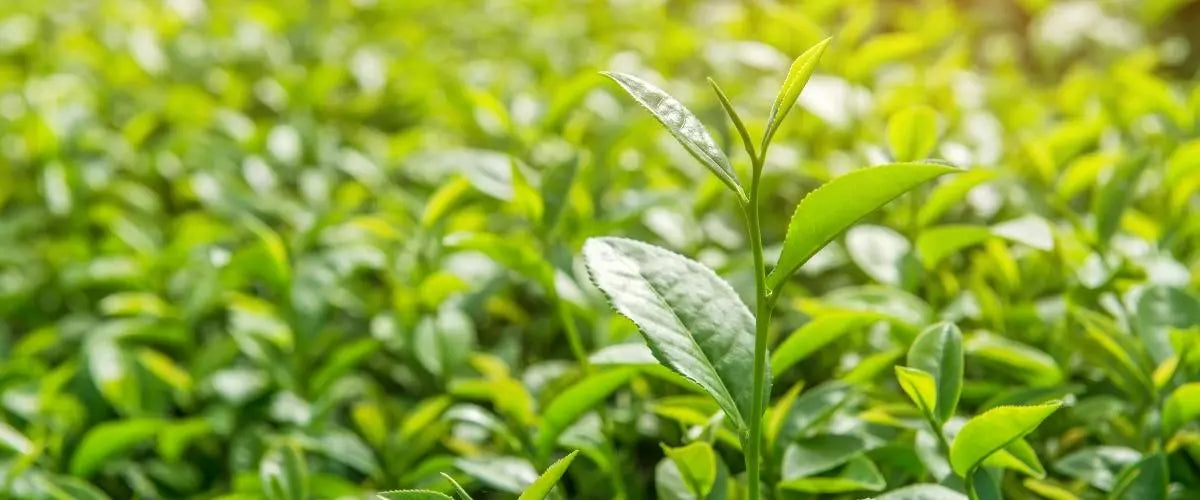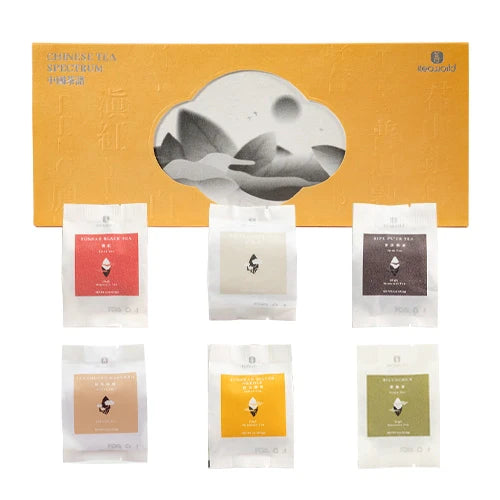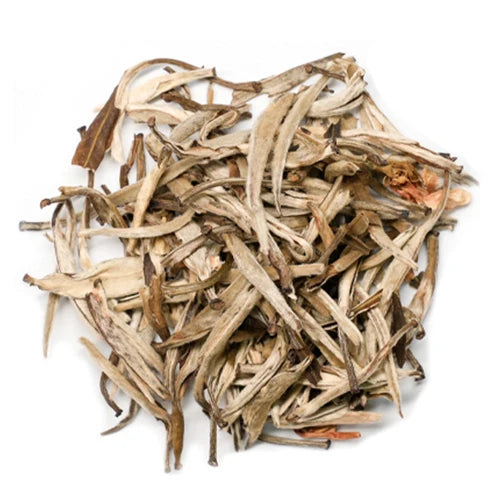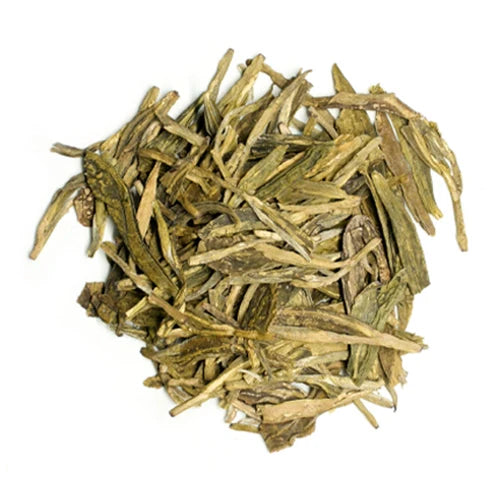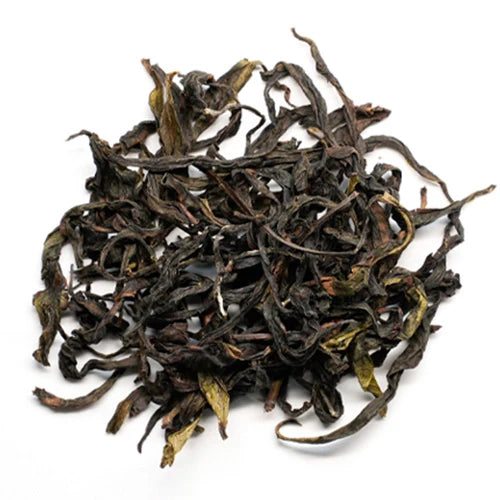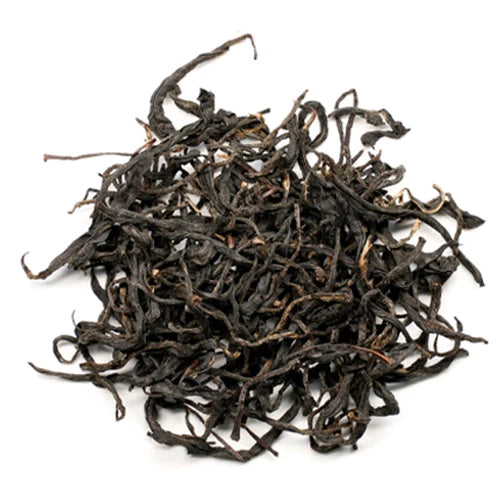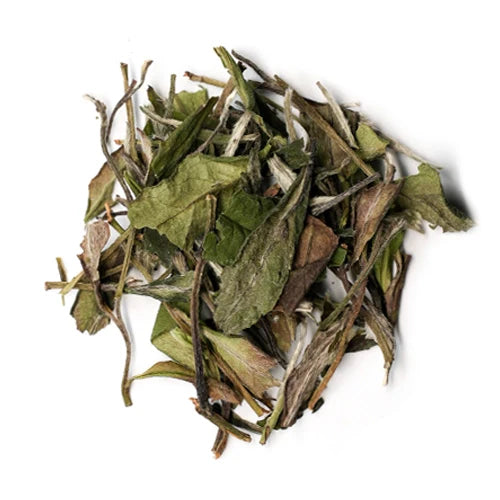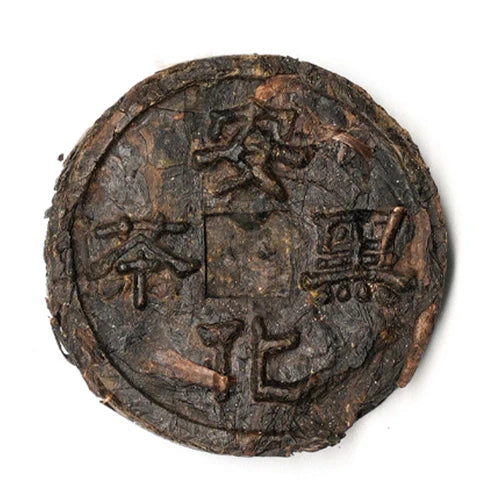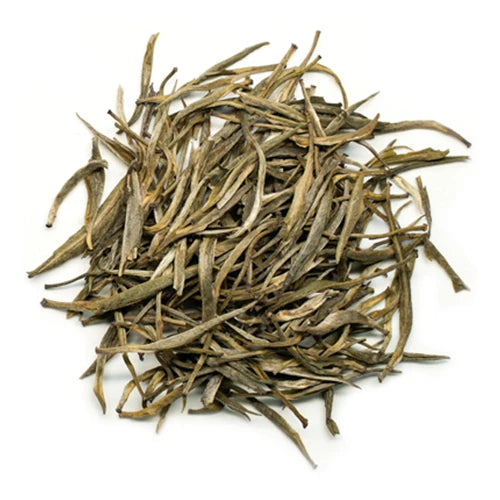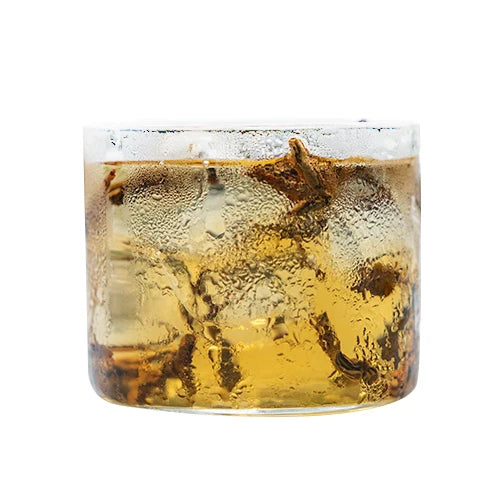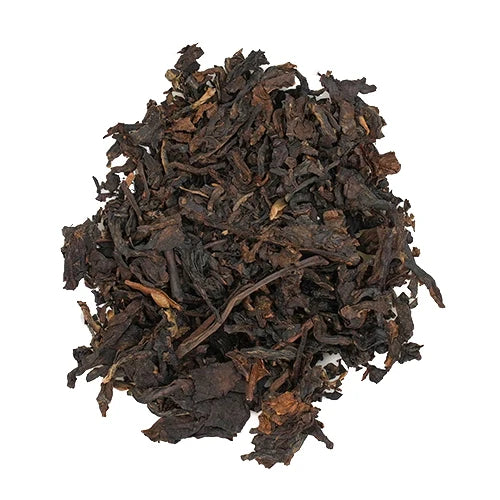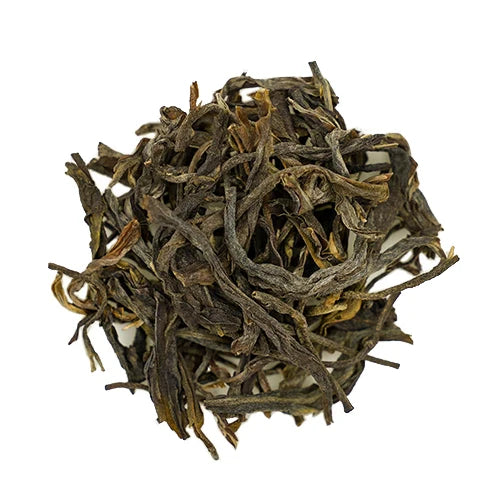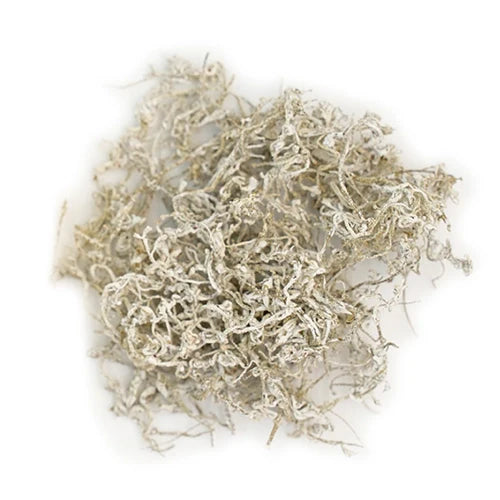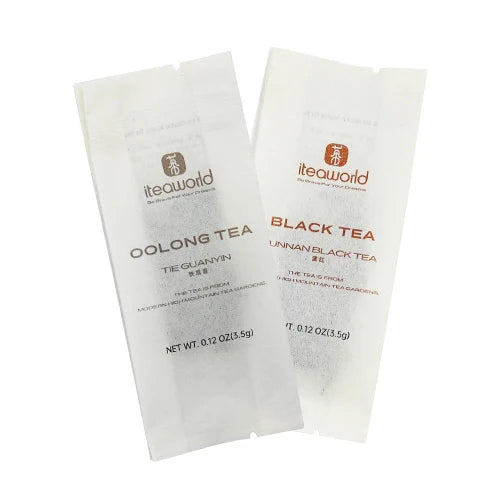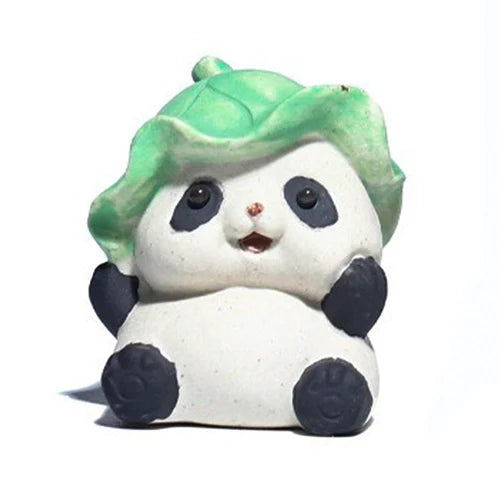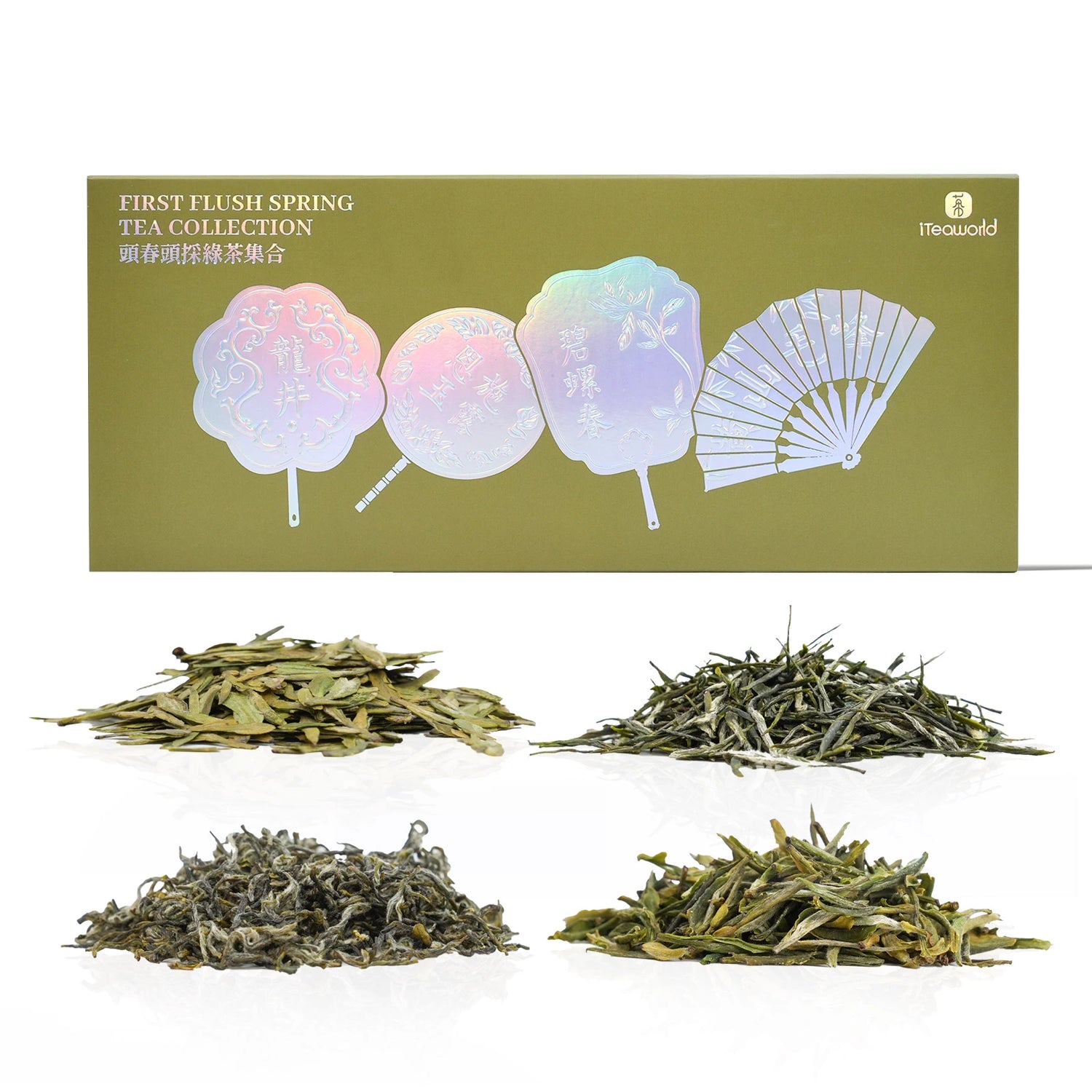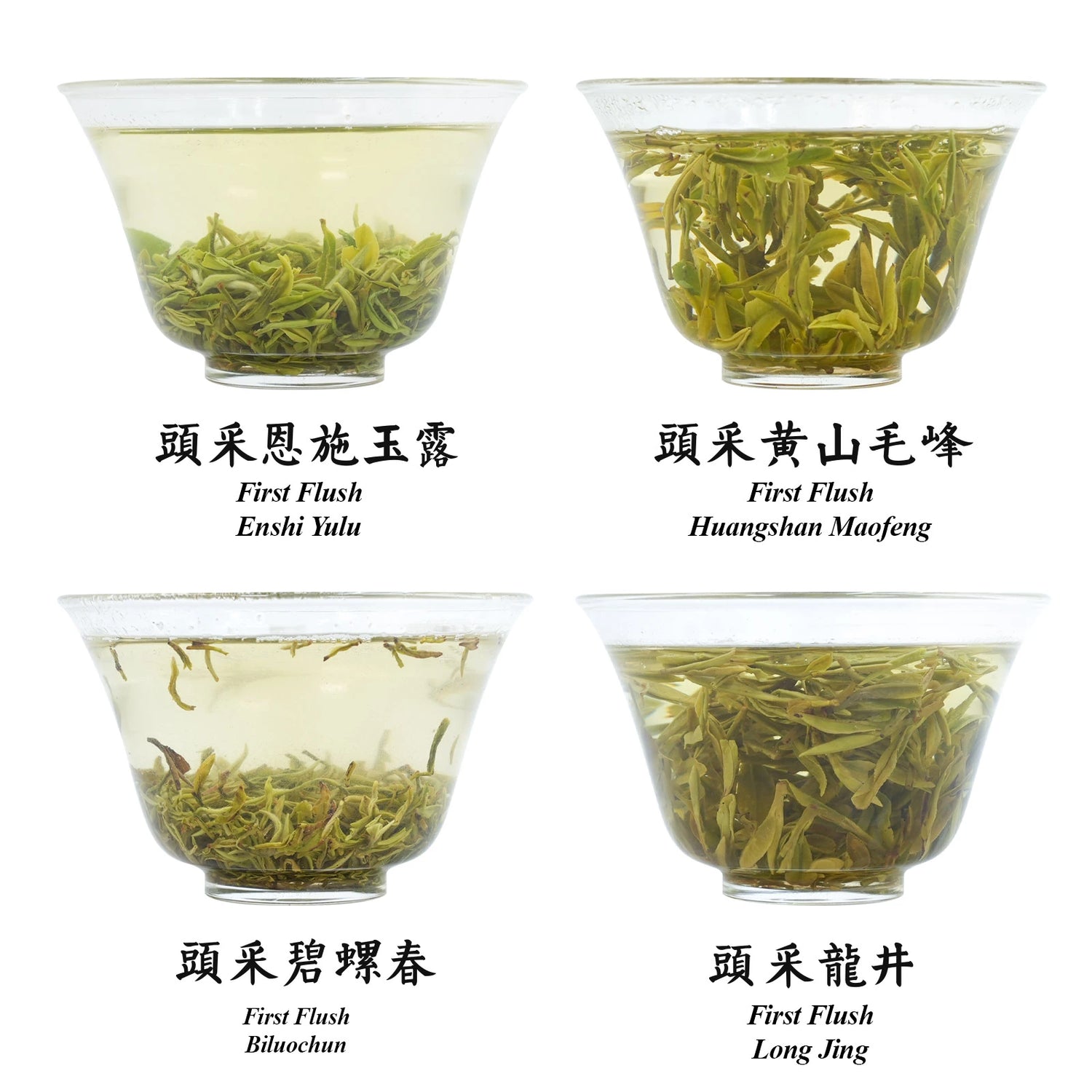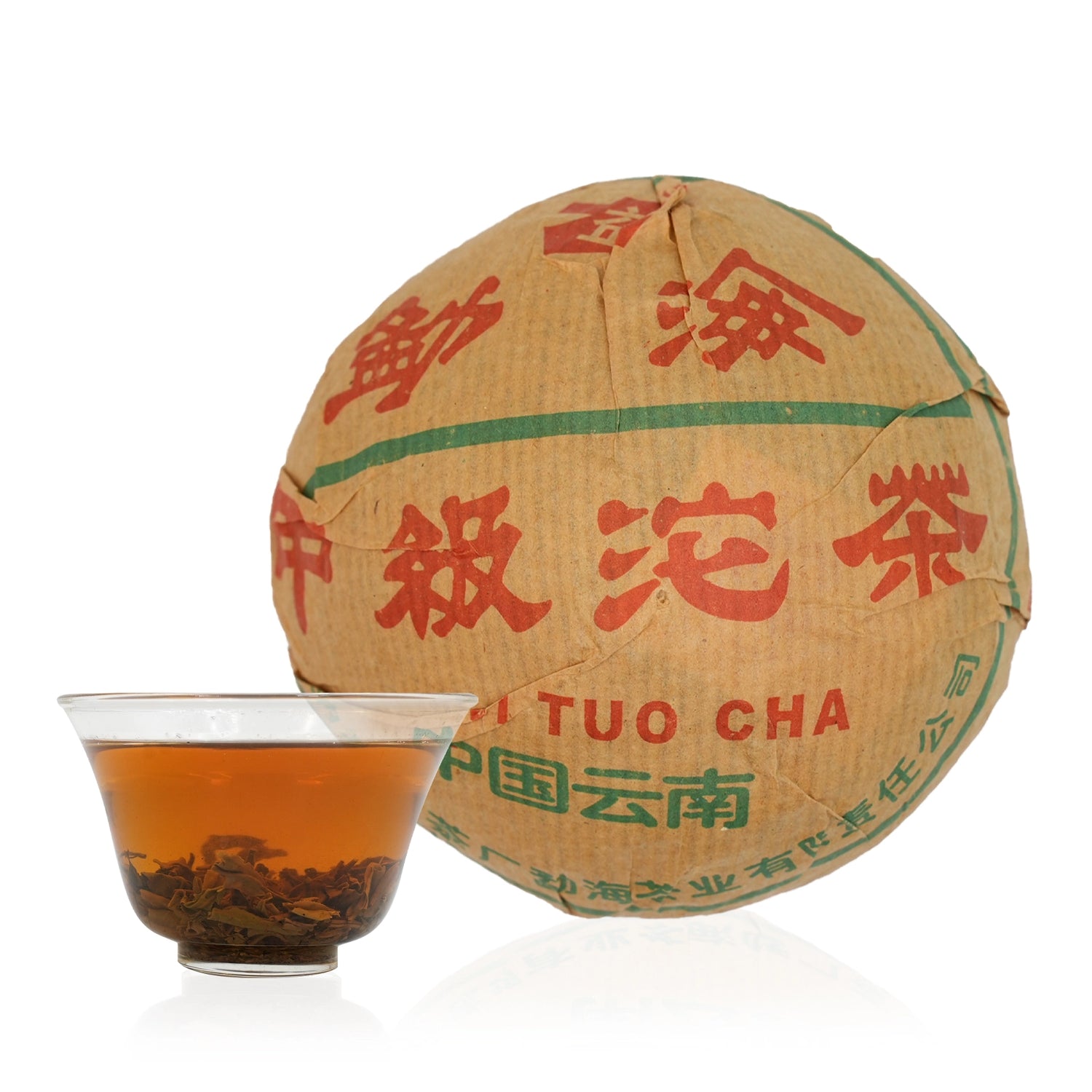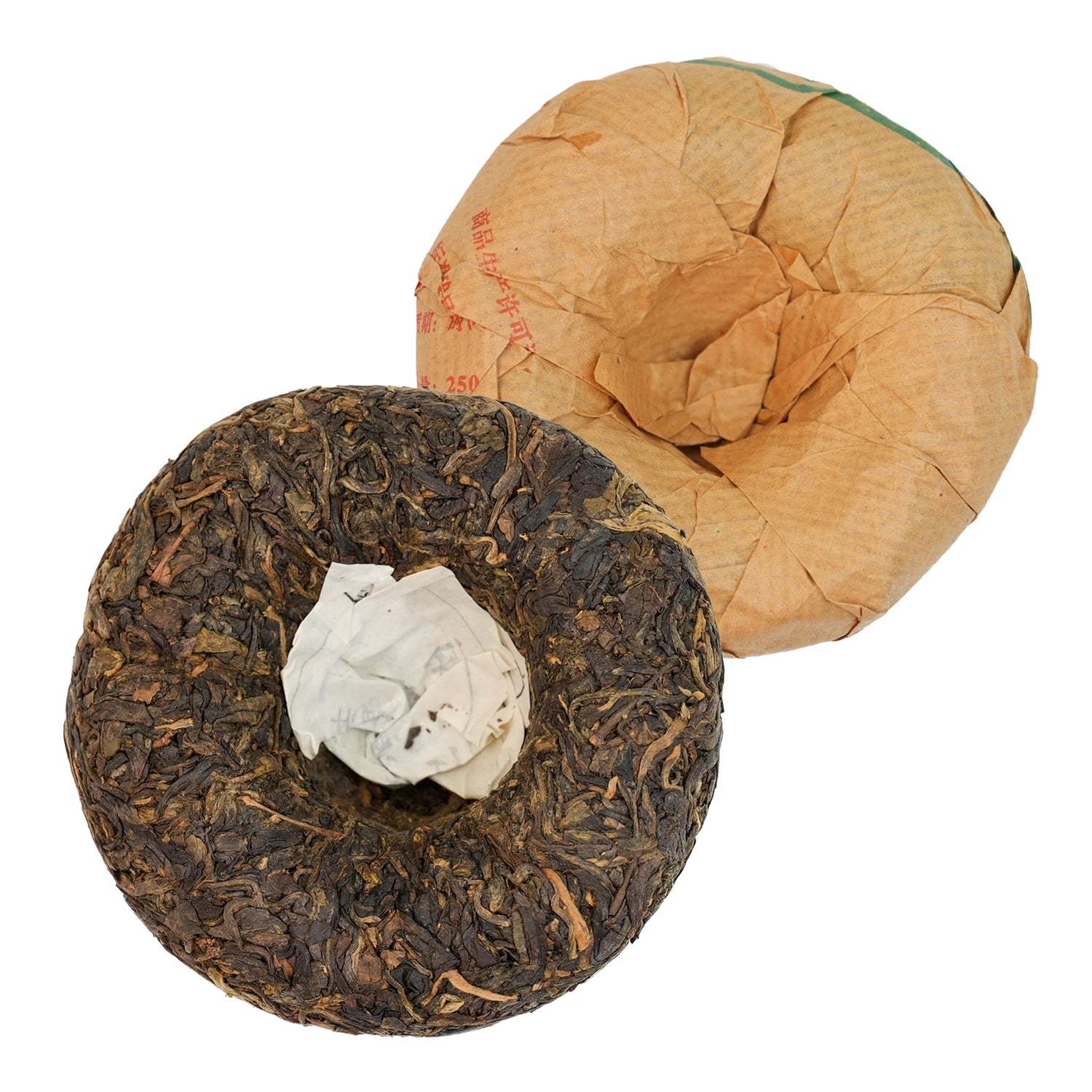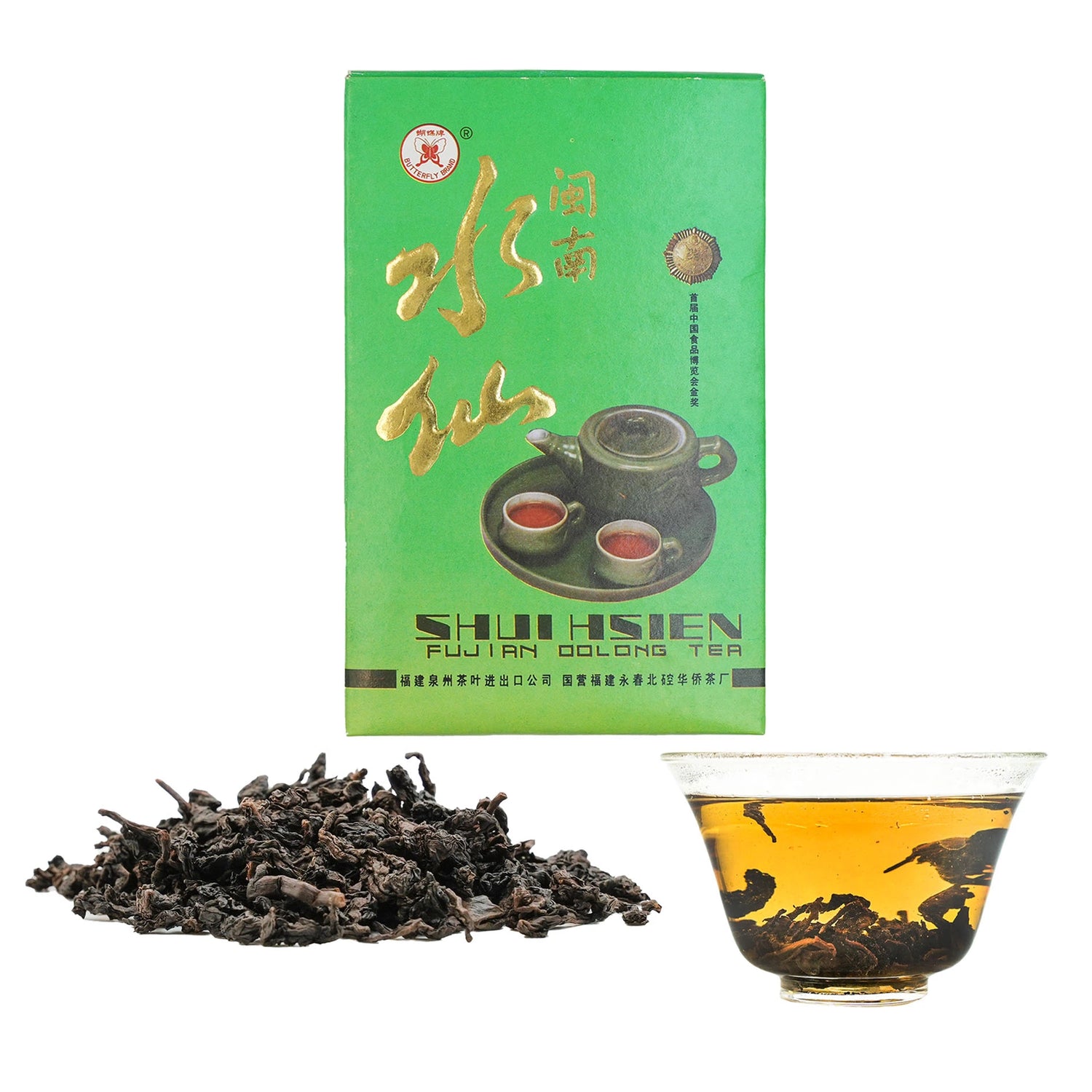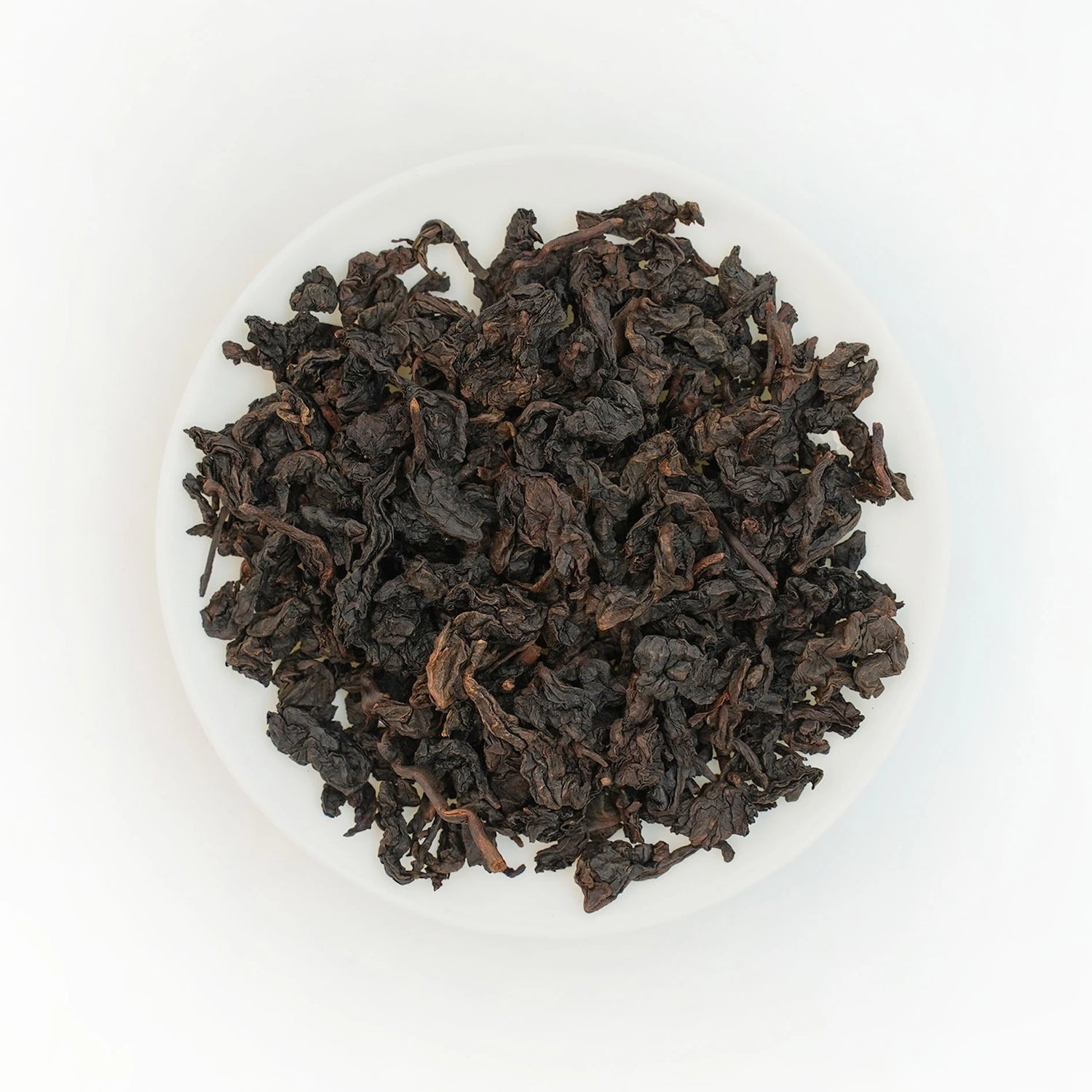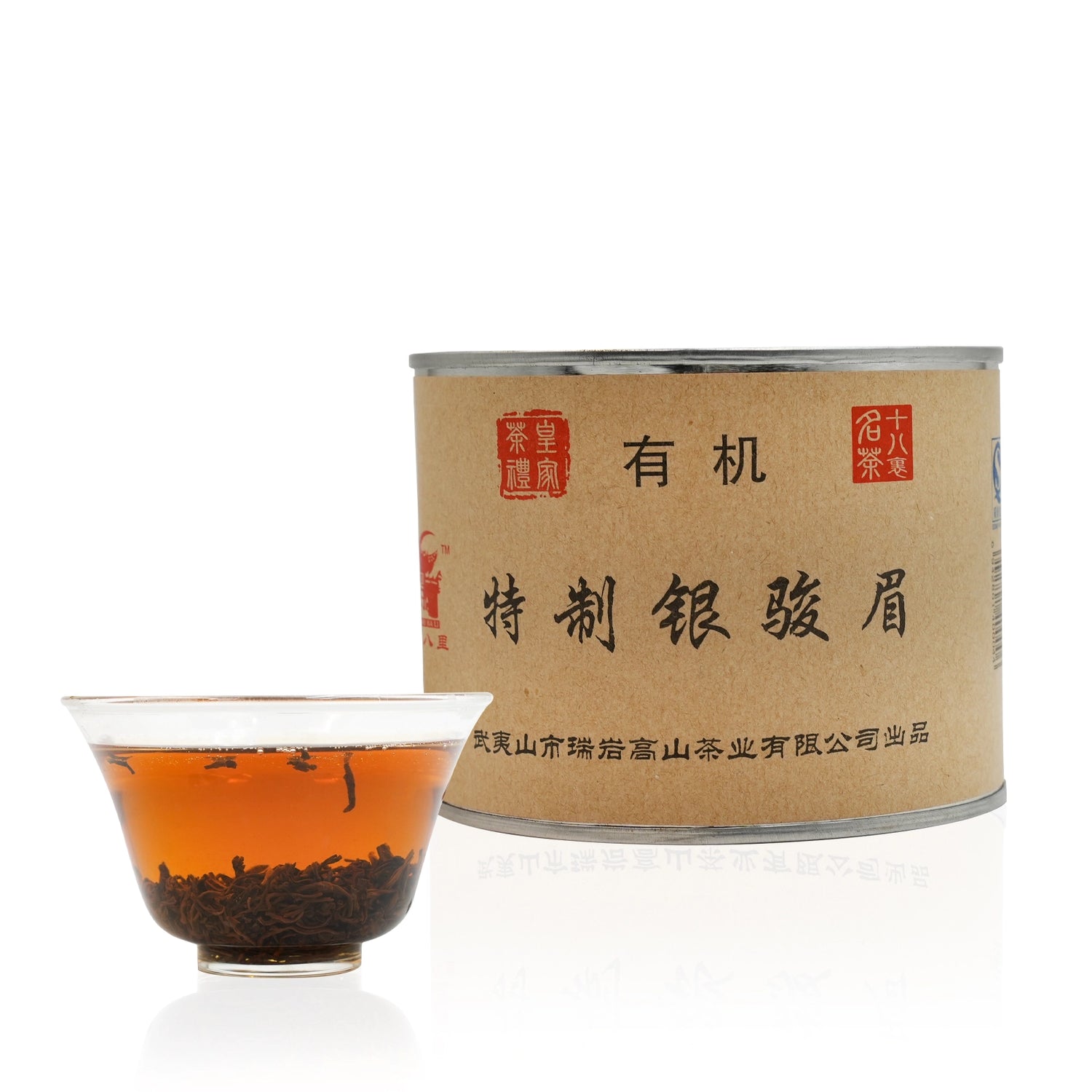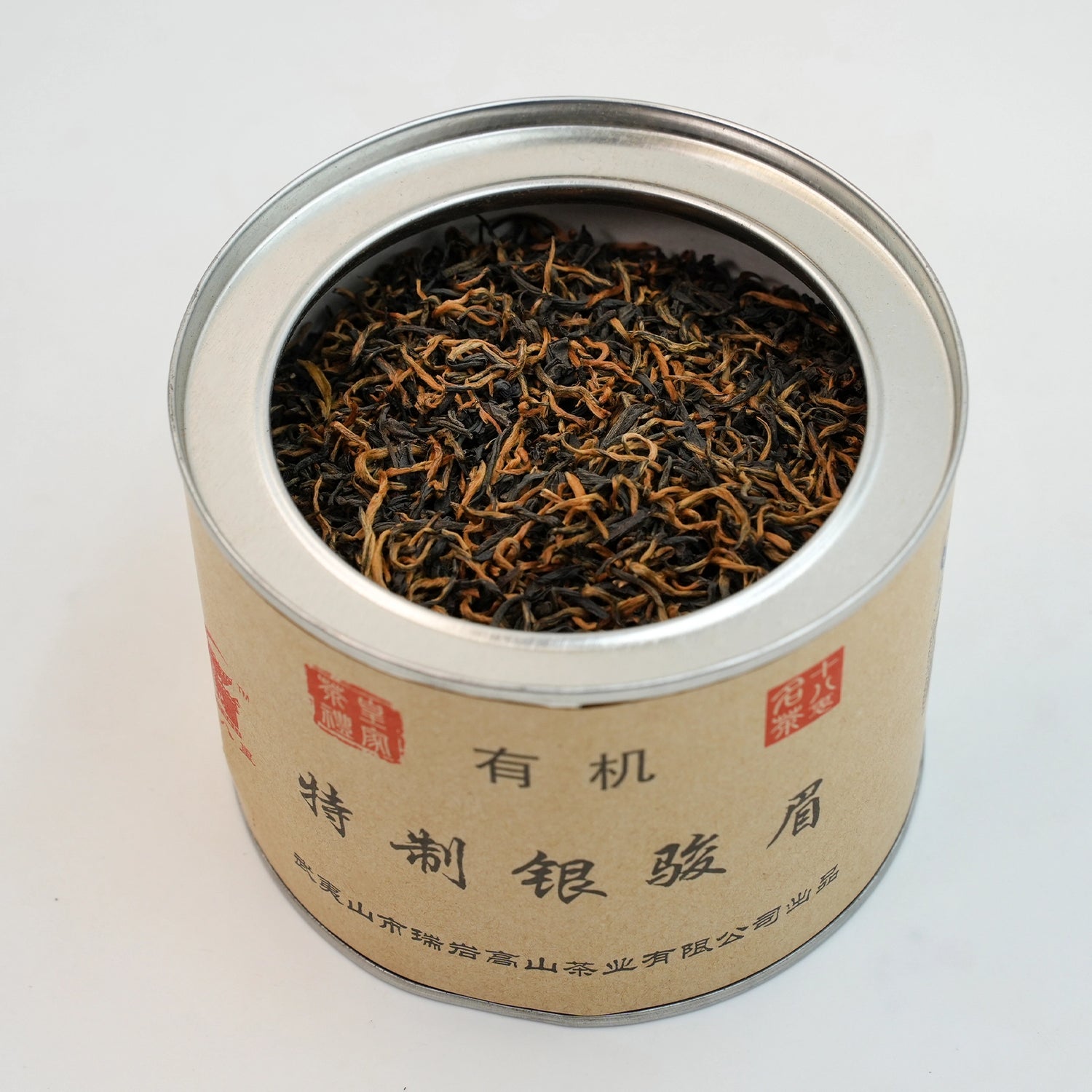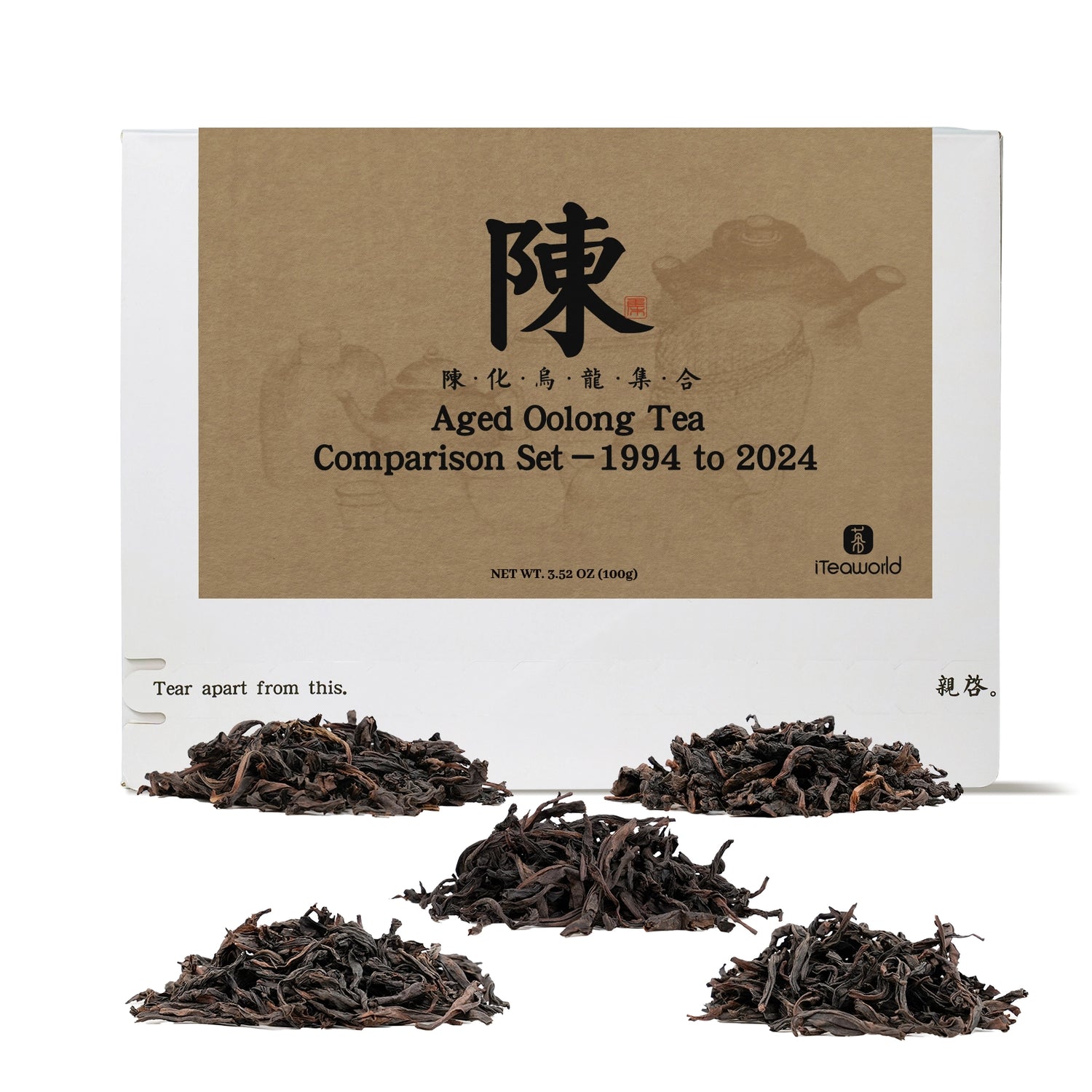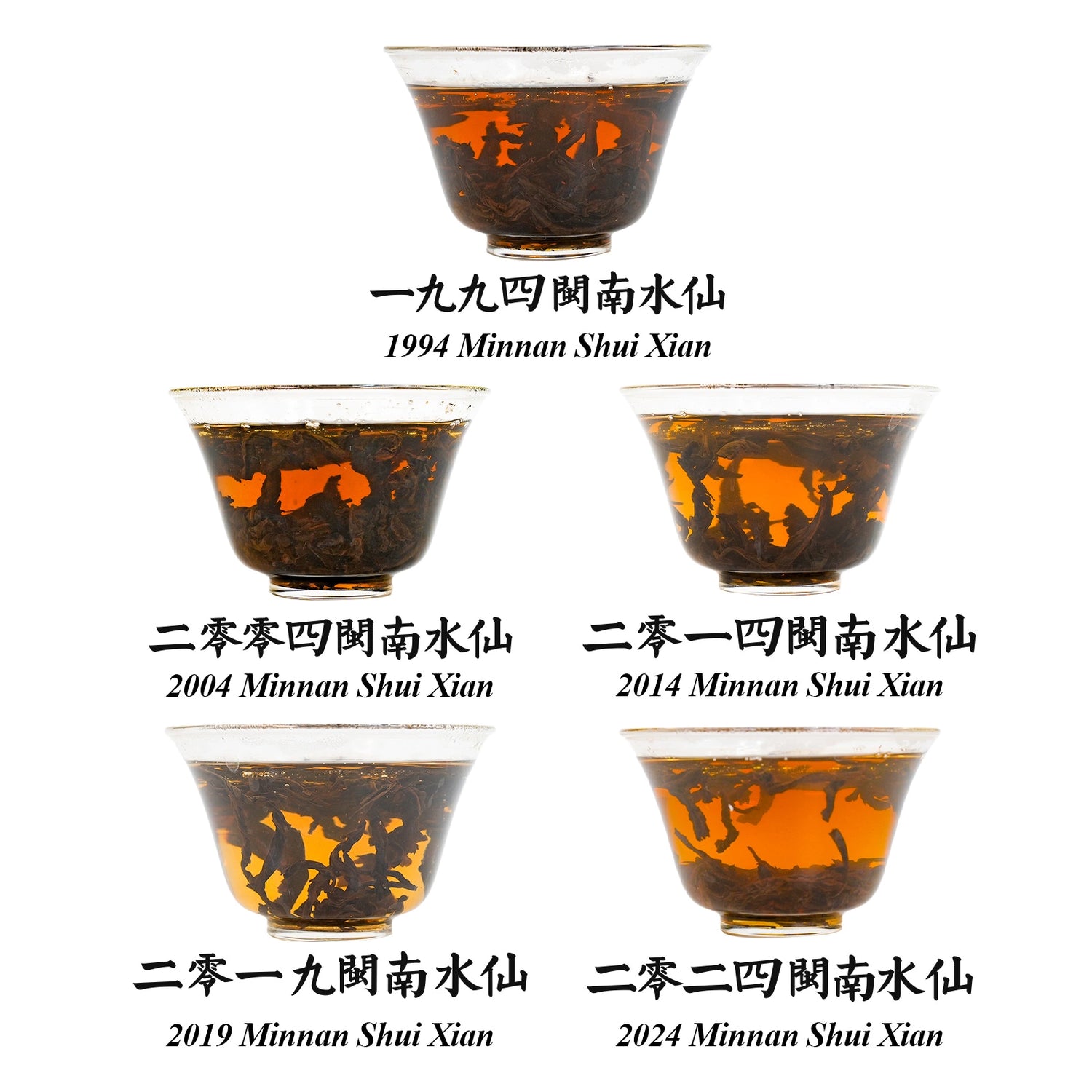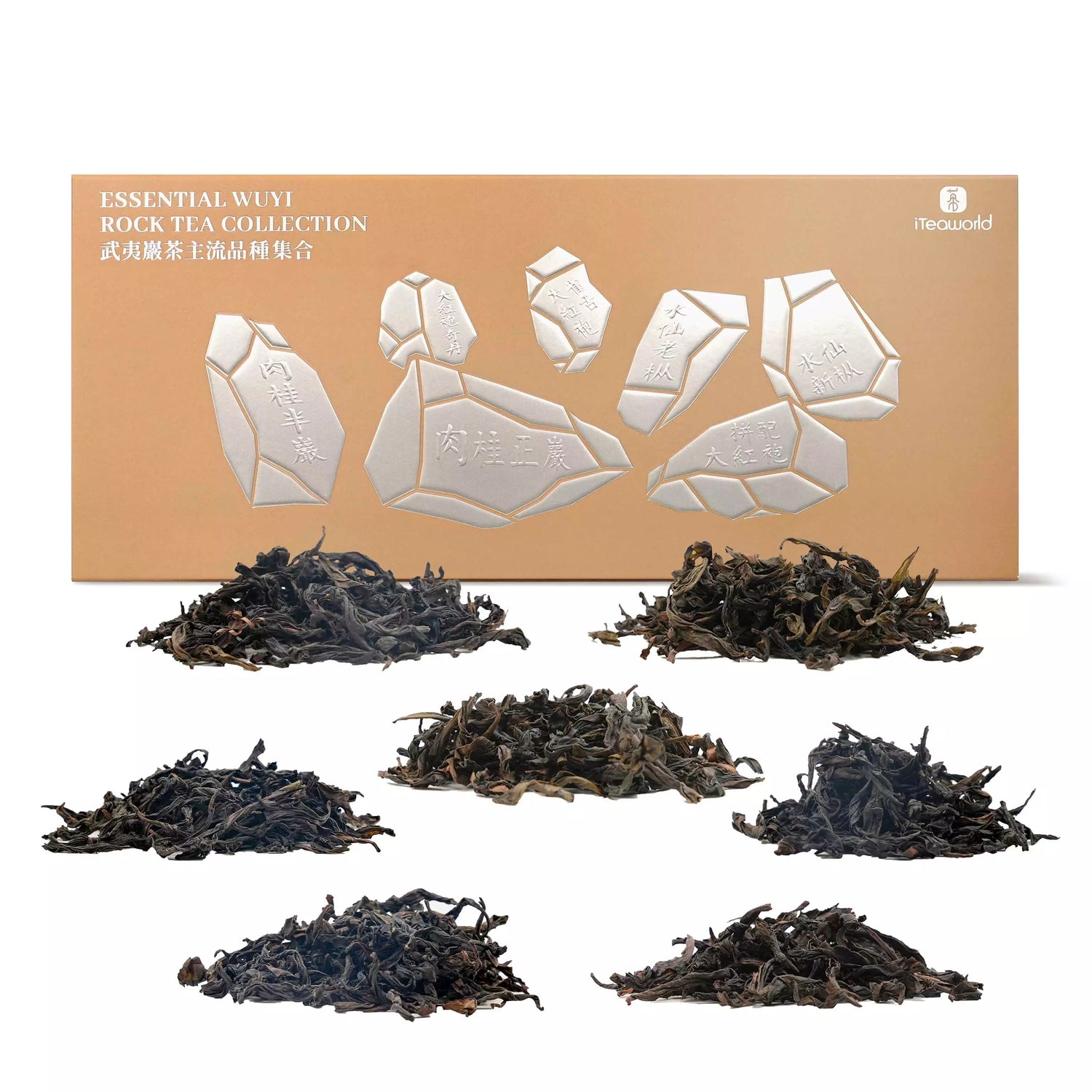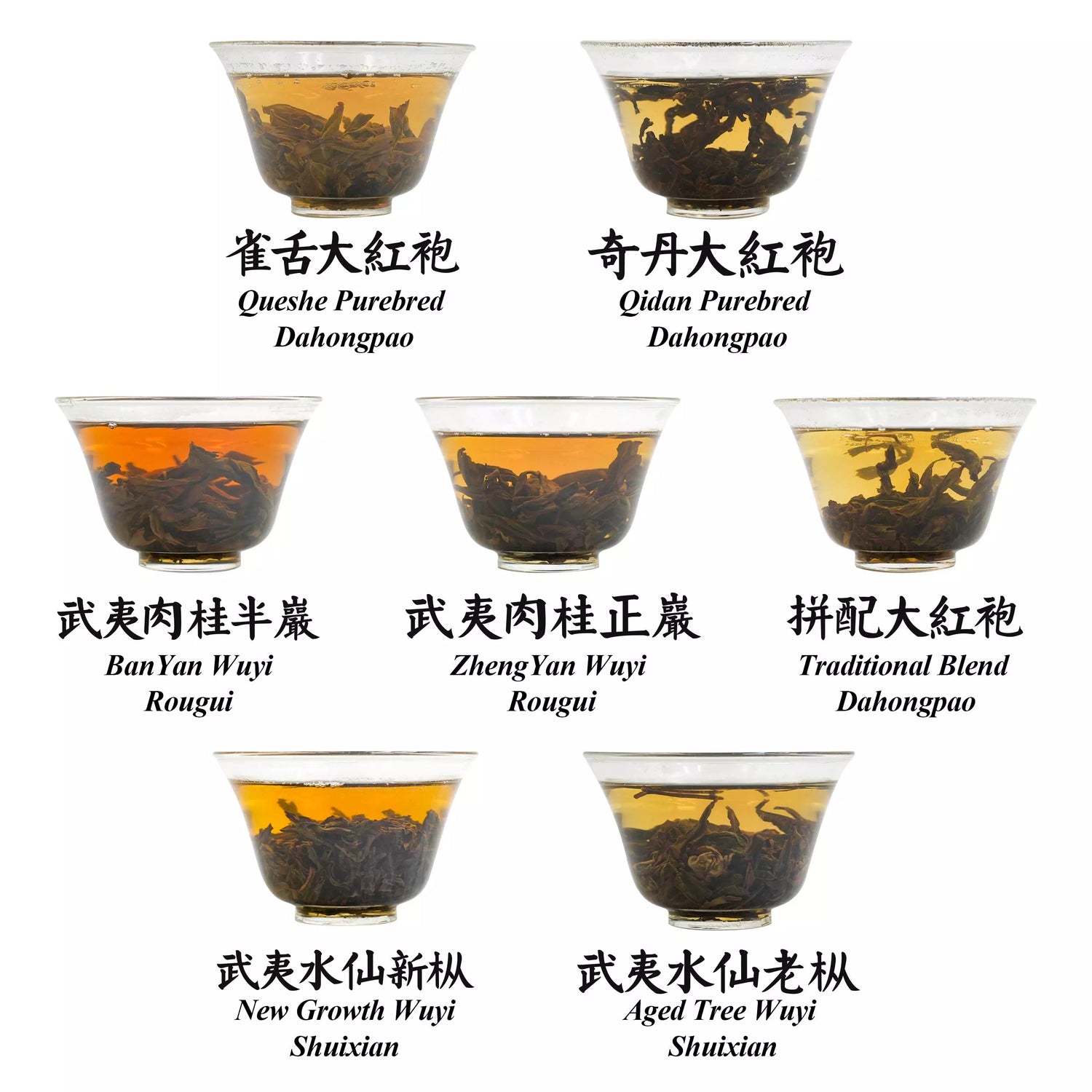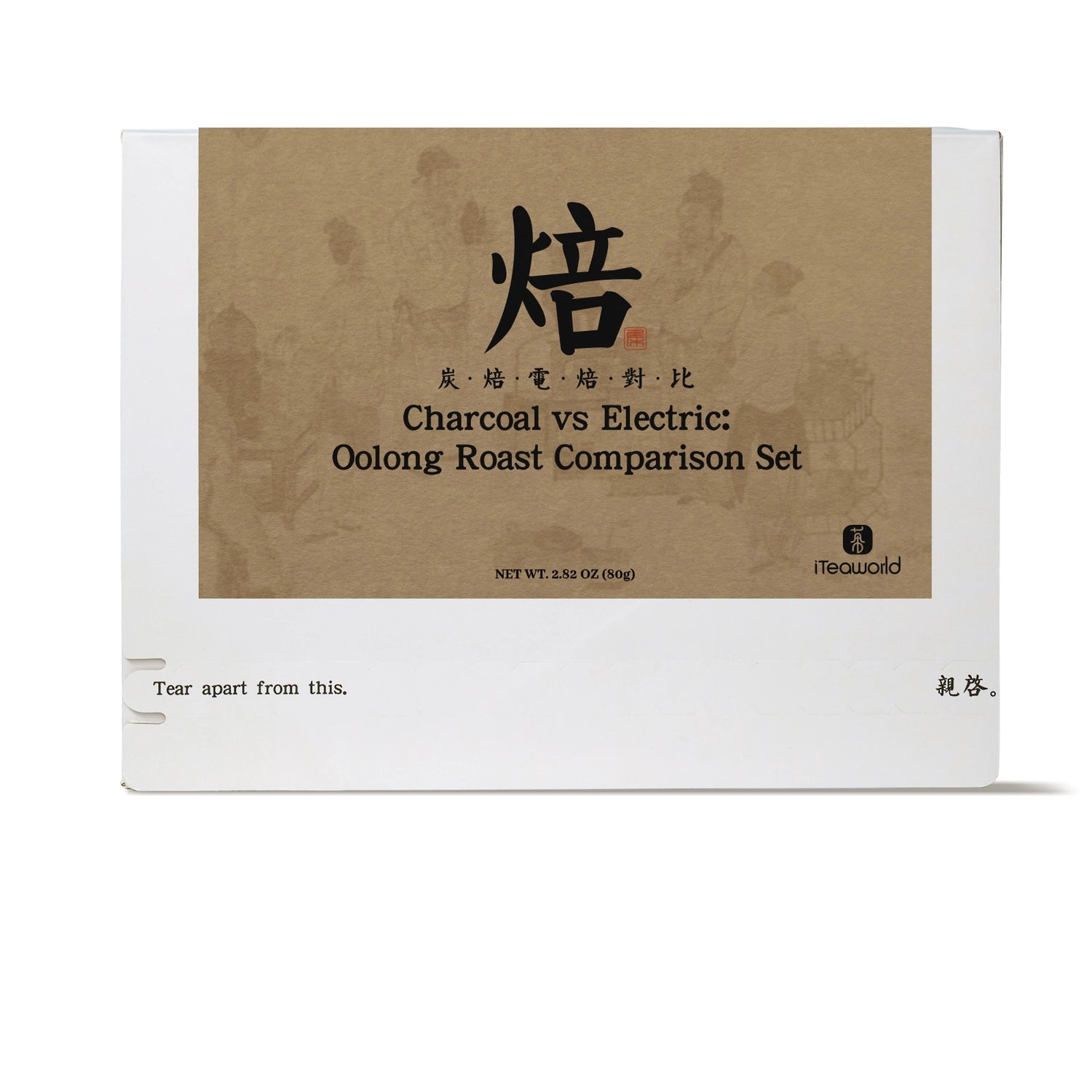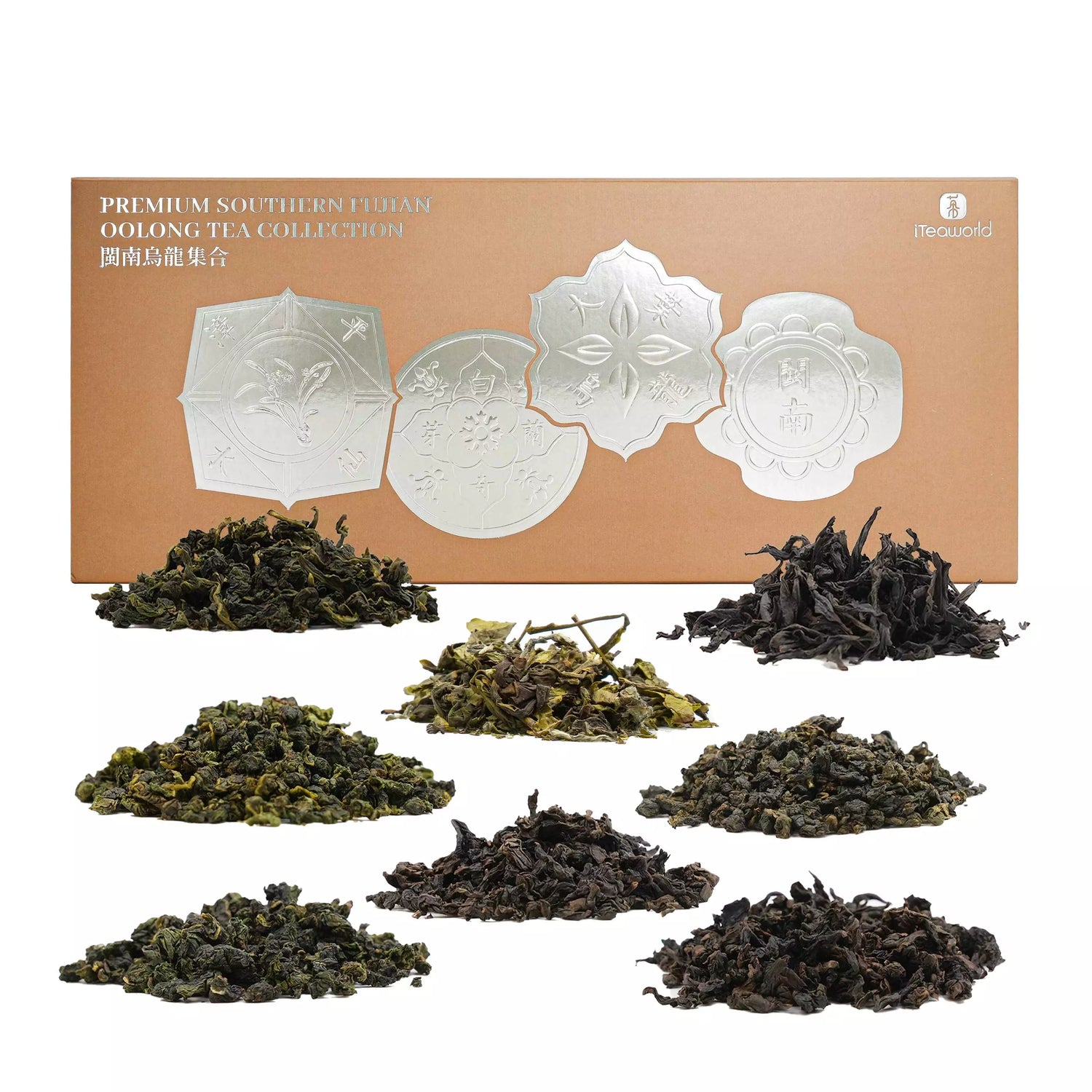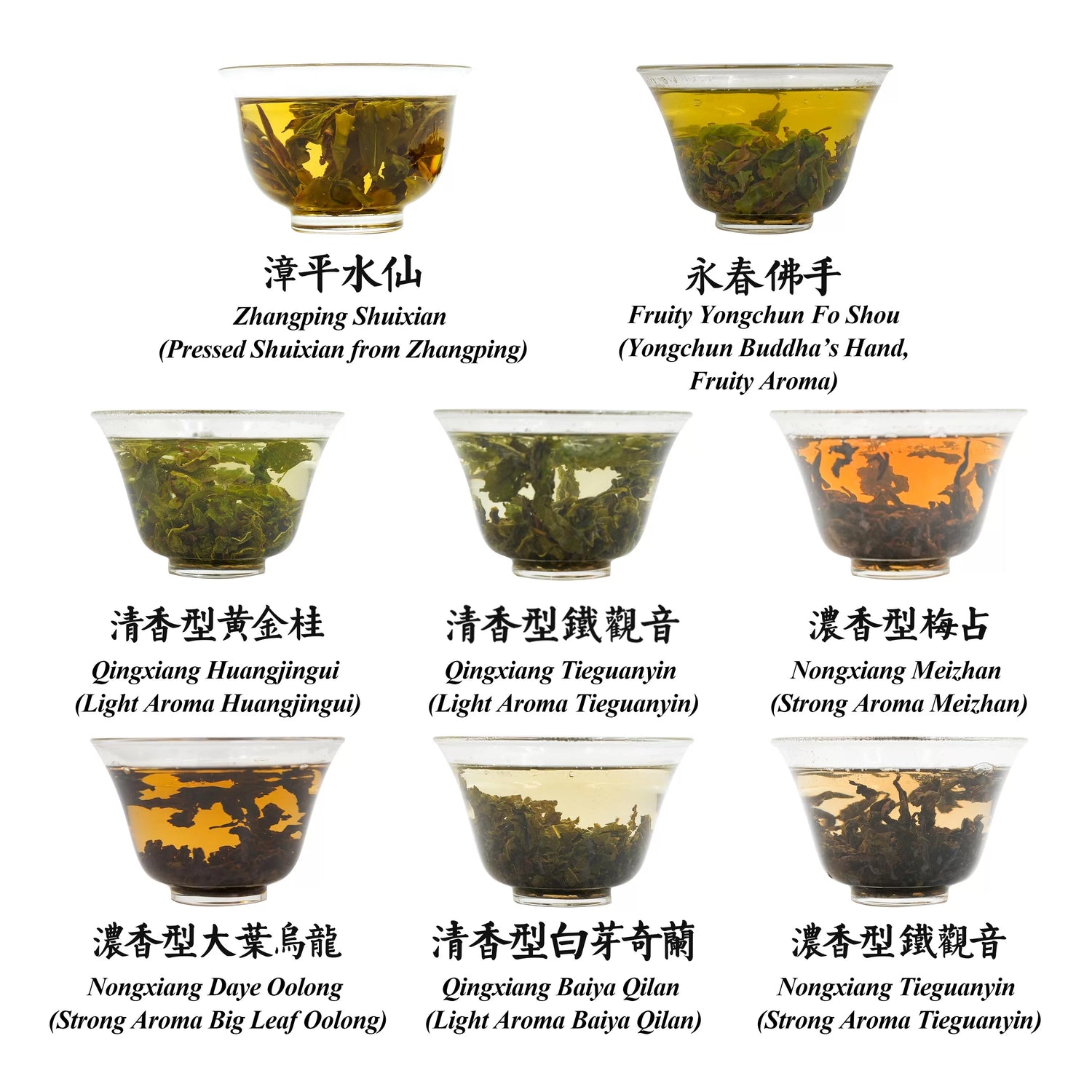Sort by:
98 products
98 products
Introduction:
This Hubei Dark Tea is meticulously selected from the autumn harvest of 2022. Plucked from high-altitude tea gardens in Zhaoliqiao Town, Hubei Province, it adheres to the plucking standard of one bud and three leaves. This tea is a type of Hubei Dark Tea known as "Mi Zhuan Cha" (Rice Brick Tea), renowned for its unique flavor profile. The tea liquor is rich and robust, with a slight initial bitterness that transforms into a lasting sweet aftertaste. It primarily exudes a floral and honey-like aroma, accompanied by a subtle aged fragrance.
Reasons to Recommend:
- Unique Raw Material: Mi Zhuan Cha is a specialty tea produced in Chibi City, Hubei Province, known as the "Hometown of Chinese Brick Tea." It is a compressed black tea made entirely from tea dust, which gives it the name "Rice Brick Tea."
- Distinct Appearance: The finished Mi Zhuan Cha is visually striking, with sharp edges, a smooth surface adorned with intricate patterns, and a glossy black brick color. When brewed, it produces a deep red liquor with a pure aroma and a rich, mellow taste.
- High-Mountain Tea Gardens: The tea trees grow at high altitudes, where significant daily temperature variations slow their growth. The abundant mist and moisture nourish the tea trees, enriching the leaves with nutrients and resulting in a tea with a robust flavor and strong aroma.
Oxidation Level: Wet piling followed by high-temperature steam pressing
Roasting Level: None
Tea Garden Soil: Yellow-brown soil
Processing Time: Autumn 2022
Best Before Date: Suitable for long-term storage
Tea Variety: South Hubei Group Variety
2025 First Flush Spring Tea Collection: Biluochun, Longjing & More
We’re excited to introduce a unique tea experience: the 2025 Early Spring First Harvest Green Tea Collection. This special gift box includes four of China’s most loved and iconic first harvest green teas, giving you the chance to enjoy the different flavors of Longjing, Biluochun, Huangshan Maofeng, and Enshi Yulu all in one go.
Product Includes:
2025 First Flush Longjing - Artisan-Crafted Spring Green Tea (25g)
2025 First Flush Biluochun - Hand-Rolled Curly Green Tea (25g)
2025 First Flush Huangshan Maofeng - High-Mountain Bud Tea (25g)
2025 First Flush Enshi Yulu - Steamed Jade Dew Tea (25g)
Limited availability: Only 100 sets, each set is 100g (25g of each tea)
Why Choose This Collection?
Taste Four Classic First Harvest Teas in One Box Whether you’re a green tea enthusiast or someone wanting to dive into Chinese tea culture, this collection is the perfect choice. From Longjing’s refreshing taste, Biluochun’s floral fragrance, Huangshan Maofeng’s rich aftertaste, to Enshi Yulu’s clean and pure flavor – each tea offers a completely different tasting experience, making it a journey for your taste buds.
First Harvest Means Better Quality Each tea in this collection comes from the 2025 Early Spring First Harvest – handpicked from the youngest, freshest buds of the season, guaranteeing vibrant freshness and rich aromas. First harvest teas are especially rare and prized; once the season passes, it’s almost impossible to find them again.
Sourced from Top Tea Regions, Expertly Crafted These teas are from China’s most renowned tea-growing regions, carefully crafted by seasoned tea masters. Whether it’s the signature fragrance of Longjing, the floral notes of Biluochun, the sweetness of Huangshan Maofeng, or the refreshing taste of Enshi Yulu – each tea is a masterpiece from a tea master, grown in ideal natural conditions.
Recommended Purchase :
This Tie Guan Yin Oolong tea, produced between 1990 and 1993, has been stored in a dry warehouse of an old tea factory for over thirty years and kept sealed. It is made from the Tie Guan Yin variety from the famous tea-growing region of Yongchun, Fujian, and was crafted by the state-owned Yongchun Kong Overseas Chinese Tea Factory, established in 1958. This tea is entirely handmade, traditionally roasted over a full fire, and comes in its original packaging. No longer available on the market, its unique "aged aroma," rich sweetness, and smooth texture make it a prized choice for connoisseurs of aged oolong tea.
Key Details about Tieguanyin :
- Production Date:1990-1993
- Grade: First grade
- Tea Cultivar: Tieguanyin
- Craftsmanship: This tea is traditionally roasted with a full fire and moderately oxidized. After over thirty years of natural aging in a dry storage environment, it is sealed in an outer paper box and packaged in an inner kraft paper bag.
- Flavor Highlights: This tea offers a rich, aged aroma with hints of woody notes. The texture is thick and smooth, with a deep, mellow flavor and a long-lasting sweet aftertaste. Its complex profile unfolds in layers, making it a truly refined experience.
What is Tieguanyin Oolong Tea? :
Tieguanyin is one of China's top ten famous teas, a semi-fermented oolong tea primarily produced in Anxi, Fujian. Its unique production process includes sun-withering, shaking, and heating, which gives the leaves a distinctive "green leaf with red edges" appearance. The tea features tightly rolled, sandy-green leaves and a golden, clear brew. It has a rich, lasting aroma with natural orchid or fruity notes, a smooth, refreshing taste, and a sweet aftertaste. Highly resistant to multiple infusions, Tieguanyin is packed with nutrients like polyphenols and amino acids, offering benefits such as boosting alertness, reducing fatigue, cooling the body, and aiding weight loss. A treasured tea and a symbol of Southern Fujian's tea culture, it is widely loved by tea enthusiasts.
Brewing and Enjoyment Tips :
This tea showcases the unique transformation brought by time. The first infusion can be used as a "tea awakening" step to activate the tea's inner qualities, resulting in a richer, smoother texture and a more pronounced sweet aftertaste. For the best experience, we recommend using longer steeping times or boiling methods to fully unlock its aged characteristics.
Recommended Brewing Methods :
-
Gaiwan Brewing
- Capacity:100ml Gaiwan
- Water Temperature:95℃-100℃
- Brewing Times:5-7 times
- Tea Water Ratio:1:15 to 1:25
- Brewing Time Once:10~20 seconds
-
Thermos Brewing
- 1g tea per 100ml (3.4oz) water.
- Use boiling water (212°F).
- Steeping Time: 1-2 hours.
- Tool: Insulated thermos.
-
Boiling Method
- Add 1g tea per 100ml (3.4fl oz) water.
- Boil for 1-2 minutes, then let sit for 2-3 minutes.
- Rebrew by boiling for 3 minutes longer with each steeping.
- Use a ceramic or glass teapot for optimal flavor.
- Enjoy up to 3-4 brews.
Storage Guidelines:
To ensure the best quality of tea, the ideal way to store it is in vacuum-sealed packaging, kept in a cool, dark, and dry place. Avoid exposure to strong odors and air. For sealed storage, using a tin can or a double-lidded metal can is recommended. For even better results, you can store the sealed tea in the refrigerator or a dry storage container.
Weight & Packaging
- Weight:3.5oz (100g)
- Packing Type : Sealed paper box with cowhide bag packaging inside
About Yongchun Beikeng Overseas Chinese Tea Factory:
Established in 1958, the state-owned Fujian Yongchun Beikeng Overseas Chinese Tea Factory carries a rich history and cultural heritage of tea production. At its peak, the factory was a bustling hub of innovation and craftsmanship, employing over 1,000 tea workers and producing millions of pounds of tea annually. Its teas, including Tieguanyin, were exported to Hong Kong, Taiwan, Japan, and Southeast Asia, earning widespread acclaim and becoming a shining symbol of Fujian's tea culture.
However, by the 1990s, the factory fell into decline, and its once-vibrant grounds grew quiet. Unable to bear seeing his life's work fade away, the veteran factory director, Huang Shenghou, took over after its privatization, dedicating himself to reviving the factory and preserving its tea-making legacy.
Today, the factory's aged Tieguanyin not only embodies decades of tea-making expertise but also continues to showcase the timeless charm of Yongchun's Tieguanyin. The story of the Fujian Yongchun Beikeng Overseas Chinese Tea Factory reflects the dedication and innovation of generations of tea artisans, and its aged Tieguanyin carries forward this remarkable legacy.
Recommended Purchase :
This product, originating from 2003, is a type of brick tea known as Mi Zhuan Tea, which has been stored in a dry warehouse in the north for 22 years. It is made from high-quality black tea through a process of steaming and pressing. Produced by the renowned Zhao Li Qiao Tea Factory in Hubei Province, it is meticulously crafted according to traditional processing techniques. The tea leaves used as raw material are as fine as grains of rice, hence the name "Mi Zhuan" (Rice Brick). This tea is no longer available on the market. The brick surface exhibits a dark, glossy color with exquisite patterns and distinct edges. The brewed tea presents a deep red, bright liquor with a pronounced medicinal aroma and a mellow, harmonious flavor, making it a coveted choice for enthusiasts of aged dark tea.
Key Details about Mi Zhuan Tea Dark Tea :
- Origin : Chibi City, Hubei Province, China
- Production Date :2003
- Grade : Special Grade
- Tea Cultivar :Yichang large leaf tea
- Craftsmanship : Mi Zhuan Tea is produced following the manufacturing principles of Qing Brick Tea, using finely broken black tea leaves as raw material. The process involves screening, blending, compressing, demolding, inspecting, drying, and packaging. This tea has been naturally aged for 22 years in a dry warehouse environment and is wrapped in paper packaging.
- Flavor Highlights :It exhibits a prominent medicinal aroma, with a rich, deep red liquor. The taste is mellow and smooth, offering complex and layered flavors.
What is Mi Zhuan Tea Dark Tea?
Mi Zhuan Tea (Rice Brick Tea) is a unique compressed tea produced in Yangloudong, an ancient town in Chibi City, Hubei Province, known as the "Hometown of Chinese Brick Tea." It is a type of compressed tea—specifically, a brick tea. The tea leaves used as raw material are as fine as grains of rice, hence the name "Mi Zhuan" (Rice Brick Tea).
The finished product is visually striking, with well-defined edges, elegant surface patterns, and a glossy, dark surface. When brewed, the tea yields a deep red liquor with a pure, mellow aroma and a rich, full-bodied flavor.
Traditionally, Mi Zhuan Tea was consumed by people living in cold climates due to its high vitamin content, which helps compensate for the lack of fresh fruits and vegetables during winter. It is primarily sold in Xinjiang and North China, with some exports to Russia and Mongolia. In recent years, small quantities have also made their way to Europe and America, making it a distinctive and exceptional red brick tea among Chinese brick teas.
Brewing and Enjoyment Tips
This tea embodies the unique transformation brought by time. The first infusion can serve as a "tea awakening" to activate the tea's inner qualities, enhancing its flavor profile. Mi Zhuan Tea (Rice Brick Tea) is shaped like a brick. Before brewing, use a specialized brick tea knife or tea pick to gently break the brick into appropriately sized pieces. Avoid using excessive force to prevent damaging the tea leaves.
Recommended Brewing Methods :
Gaiwan Brewing
- Capacity:100ml Gaiwan
- Water Temperature:95℃-100℃
- Brewing Times:5-7 times
- Tea Water Ratio:around 1:25(Adjust according to your own taste)
- Brewing Time Once:10~20 seconds(Adjust according to your own taste),The first time as a wake-up tea can take 3-5 seconds.
Boiling Method
Place the broken pieces of Mi Zhuan Tea (Rice Brick Tea) into a tea infuser and add them to a tea kettle. Use a tea-to-water ratio of approximately 1:150, starting with cold water. Bring the water to a boil, then let it steep for 1 to 2 minutes before drinking. Remove the tea infuser from the kettle to prevent the tea from becoming overly strong.
For subsequent infusions, follow the same method. One tea infuser can be used for 3 to 4 brews.
Storage Guidelines :
To ensure the best quality of tea, the ideal way to store it is in vacuum-sealed packaging, kept in a cool, dark, and dry place. Avoid exposure to strong odors and air. For sealed storage, using a tin can or a double-lidded metal can is recommended. For even better results, you can store the sealed tea in the refrigerator or a dry storage container.
Weight & Packaging:
Weight : 35.3oz (1000g)
Packing Type : Paper packaging
About Hubei Zhaoliqiao Tea Factory
Zhao Li Qiao Tea Factory in Hubei Province is a leading enterprise in China’s border-sale tea (brick tea) industry, with an annual production capacity exceeding 10,000 tons. Its history dates back to the Xianfeng period of the Qing Dynasty (1861), when its predecessor, Yangloudong Brick Tea Factory, gained fame for its "Dong Tea." In 1953, the factory relocated to Zhao Li Qiao Town in Chibi City and adopted its current name.
As a "Time-Honored Chinese Brand" and a "National Benchmark Enterprise," the factory has preserved centuries-old craftsmanship. It specializes in producing distinctive brick teas such as Qing Zhuan, Mi Zhuan, Fu Zhuan, and Lü Zhuan . Renowned for its high-quality raw materials and meticulous processing techniques, its products are valued for their ability to aid digestion, warm the body, and boost energy. These teas have become essential to the daily lives of ethnic minorities in regions like Inner Mongolia and Xinjiang, and are exported to countries including Russia, Mongolia, the Middle East, Europe, and the Americas.
The factory benefits from its strategic location near key transportation hubs, such as the Beijing-Guangzhou Railway, giving it a significant logistical advantage. Its products have won numerous awards at both the provincial and national levels, including gold, silver, and bronze medals at the First China Food Expo. In 2020, it was recognized as part of the Fourth Batch of National Industrial Heritage, highlighting its historical significance and social contributions to the tea industry.
As a benchmark in the tea industry, blending traditional heritage with modern capabilities, Zhao Li Qiao Tea Factory continues to promote the preservation and global dissemination of Chinese brick tea culture.
Recommended Purchase
This Yunnan Pu'er Tuo Tea, produced in 2003 and aged for 22 years in a dry northern warehouse, is crafted from Yunnan large-leaf tea varietals harvested in the region's primary tea-growing areas. It is a premium Tuo Tea produced by Menghai Tea Factory in Yunnan Province, renowned for its exquisite material selection and meticulous craftsmanship. This tea is no longer available on the market.
The tea has a unique bowl-shaped appearance, with a distinct aged aroma and a rich, complex profile. Its flavor is mellow, refreshing, and smooth, with a sweet, velvety texture and a long-lasting aftertaste. This rare and highly sought-after tea is a classic early Dayi (Menghai) masterpiece, cherished by collectors and connoisseurs alike.
Key Details about Yunnan Pu'er Tuo Tea 2003
- Origin:Xishuangbanna, Yunnan Province, China
- Production Date:2003
- Grade: First grade
- Tea Cultivar:Yunnan Large-Leaf Varietal
- Craftsmanship:Using handpicked tea leaves as the raw material, the fresh leaves are processed through withering, fixing, rolling, and sun-drying to create sun-dried tea. The sun-dried tea is then steamed and pressed into the shape of Pu'er Tuo Tea. Finally, the tea undergoes 22 years of natural aging in a dry storage environment, allowing it to develop its unique character and depth.
- Flavor Highlights :The tea exhibits a distinct aged aroma, with a rich and complex profile. Its flavor is mellow, refreshing, and smooth, with a velvety texture, high sweetness, and a long-lasting aftertaste.
What is Yunnan Pu'er Tuo Tea?
Yunnan Pu'er Tuo Tea is a traditional and distinctive tea from Yunnan Province, known for its unique shape, resembling a thick-walled bowl with a concave center. It is tightly compressed and neatly formed, made from Pu'er tea as the raw material.
Dark Tea Tuo Tea is further divided into two types:
Raw Tuo (Sheng Tuo): Compressed directly from sun-dried raw tea leaves, featuring a dark, glossy color, a fresh aroma, and a sweet aftertaste.
Ripe Tuo (Shou Tuo): Fermented through artificial pile fermentation, resulting in a reddish-brown color and a rich, mellow flavor.
Pu'er Tuo Tea has a long history, with records dating back to the Ming Dynasty in the book "Dian Lue." In 1986, the 100-gram Tuo Tea produced by Yunnan Xiaguan Tea Factory won the Golden Rooster Award in Paris, France.Modern research has confirmed its significant health benefits. Clinical trials by French and Chinese medical institutions have shown that it can reduce blood lipids and cholesterol, and assist in treating obesity, hypertension, and arteriosclerosis.The tea's liquor is known for its enduring color, aroma, and flavor, combining cultural heritage with health-promoting properties. It has gained international acclaim for its unique qualities.
Brewing and Enjoyment Tips
This tea embodies the unique transformation brought by time. The first infusion can serve as a "tea awakening" to activate the tea's inner qualities, enhancing its flavor profile.Tuo Tea is a type of compressed tea. Before brewing, use a specialized tea knife or tea pick to gently break the Tuo Tea into appropriately sized pieces. Avoid using excessive force to prevent damaging the tea leaves.
Recommended Brewing Methods
- Capacity:100ml Gaiwan
- Water Temperature:90-100℃
- Brewing Times:7-8 times
- Tea Water Ratio:around 1:20(Adjust according to your own taste)
- Brewing Time Once:10-20 seconds(Adjust according to your own taste),The first time as a wake-up tea can take 3 seconds.
Storage Guidelines
To ensure the best quality of tea, the ideal way to store it is in vacuum-sealed packaging, kept in a cool, dark, and dry place. Avoid exposure to strong odors and air. For sealed storage, using a tin can or a double-lidded metal can is recommended. For even better results, you can store the sealed tea in the refrigerator or a dry storage container.
Weight & Packaging
Weight : 3.5oz (100g)/8.8oz(250g)
Packing Type : Kraft paper packaging
About Menghai Tea Factory
Menghai Tea Factory is a benchmark enterprise in the Pu'er tea industry. Established in 1940 in Menghai County, Xishuangbanna, Yunnan—the birthplace of tea trees and a core production region for Pu'er tea—it is the oldest professional tea company in Yunnan. The factory integrates cultivation, processing, and sales, and its flagship brand, "Dayi," offers hundreds of varieties, including Pu'er tea, black tea, and green tea. Its representative products, 7572 Ripe Cake and 7542 Raw Cake, are widely recognized as the gold standard for Pu'er tea quality.
The factory has made outstanding contributions to the modern development of Pu'er tea: it pioneered and first applied artificial post-fermentation aging technology, driving innovation in Pu'er tea processing. It also led the large-scale production of Yunnan Seven Sons Cake Tea, establishing a classic form in the industry. Today, the factory owns a 380-acre modern processing facility and two 10,000-acre eco-tea garden bases in Bada and Bulang Mountain, creating a comprehensive industry chain.
With its deep historical roots and technological innovation, Menghai Tea Factory continues to lead the development of the Pu'er tea industry. Its products are highly valued for both drinking and collecting, earning global acclaim from consumers.
Recommended Purchase :
This Hei Zhuan Tea (Black Brick Tea), produced in 2011 and aged for 14 years in a dry northern warehouse, is made from authentic Gao Ma Er Xi dark raw tea through a process of steaming and compression. It is produced by Hunan Jiuyang Tea Co., Ltd. and meticulously crafted through steps including crushing, sifting, fermentation, steaming, machine pressing, and drying. This tea is no longer available on the market.
The brick features a smooth surface, clear patterns, well-defined edges, uniform thickness, and a glossy dark brown color. After years of aging, it develops a distinct aged aroma accompanied by woody notes, offering a rich, mellow flavor and a smooth, refined texture.This Hei Zhuan Tea was awarded the Special Gold Medal at the 2009 Shanghai Tea Expo, making it a classic masterpiece from Jiuyang Tea Factory.
Key Details about Hei Zhuan Tea Dark Tea :
- Origin:Anhua County, Hunan Province, China
- Production Date:2011
- Grade : First Grade
- Tea Cultivar :Gao Ma Er Xi Original Group Variety
- Craftsmanship :This Hei Zhuan Tea (Black Brick Tea) is made using Anhua dark raw tea as its base material. After the raw tea arrives at the factory, it undergoes a series of processes, including sifting, winnowing, crushing, and blending, to create a semi-finished product that meets strict standards for uniformity and purity. The semi-finished product is then further processed through steaming, pressing, roasting, and packaging to produce the final Black Brick Tea.
- Flavor Highlights :The tea exhibits a distinct aged aroma, accompanied by woody notes, with a rich, mellow flavor and a smooth, refined texture.
What is Hei Zhuan Tea Dark Tea?
Hei Zhuan Tea (Black Brick Tea) is named for its use of dark raw tea (Hei Mao Cha) as the primary material, which gives the tea its dark, glossy color, and its brick-like shape when compressed. The raw material is sourced from high-quality dark raw tea produced in tea factories in Anhua and other counties.
In the past, the raw material was divided into two types: surface tea (higher quality) and inner tea (lower quality). During compression, the lower-quality tea was pressed inside, while the higher-quality tea was used on the surface. However, since the early 1970s, the labor-intensive and time-consuming traditional process was streamlined. The tea is now blended in the appropriate ratio of surface and inner tea and compressed in a single step.
During production, the raw material is first sifted, shaped, winnowed, and cleaned. It is then blended in specific proportions. For machine pressing, the tea is sterilized using high-temperature steam, compressed under high pressure, inspected and trimmed, and slowly dried before being packaged into the final brick form.
When brewed, Hei Zhuan Tea yields a liquor the color of amber, with a rich, mellow flavor and a pure, clean aroma. Long-term consumption of this tea is believed to aid digestion, regulate metabolism, and provide health benefits and preventive effects for the body.
Brewing and Enjoyment Tips :
This tea embodies the unique transformation brought by time. The first infusion can serve as a "tea awakening" to activate the tea's inner qualities, enhancing its flavor profile. Hei Zhuan Tea (Black Brick Tea) is shaped like a brick. Before brewing, use a specialized brick tea knife or tea pick to gently break the brick into appropriately sized pieces. Avoid using excessive force to prevent damaging the tea leaves.
Recommended Brewing Methods :
Gaiwan Brewing :
- Capacity:100ml Gaiwan
- Water Temperature:100℃
- Brewing Times:5-7 times
- Tea Water Ratio:around 1:20(Adjust according to your own taste)
- Brewing Time Once:2-3 minutes(Adjust according to your own taste),The first time as a wake-up tea can take 3-5 seconds.
Boiling Method :
To brew Hei Zhuan Tea (Black Brick Tea), start with 10–15 grams of tea and 500 milliliters of water. Heat the water until it reaches a rolling boil, then add the tea. Once the water comes back to a boil, lower the heat to a gentle simmer and let it cook for 2 minutes. Turn off the heat, strain out the tea leaves, and serve it hot. If you prefer a lighter flavor, you can adjust the ratio to 1 part tea to 15 parts water (for example, 10 grams of tea to 150 milliliters of water) and follow the same steps.
For a Central Asian-inspired milk tea, brew the tea as described above. Then, mix the strained tea with milk in a 1:5 ratio (1 part milk to 5 parts tea). Add a pinch of salt to taste, stir well, and enjoy this creamy, savory drink.
Storage Guidelines :
To ensure the best quality of tea, the ideal way to store it is in vacuum-sealed packaging, kept in a cool, dark, and dry place. Avoid exposure to strong odors and air. For sealed storage, using a tin can or a double-lidded metal can is recommended. For even better results, you can store the sealed tea in the refrigerator or a dry storage container.
Weight & Packaging:
Weight : 35.3oz (1000g)
Packing Type : Original paper box sealed packaging, inner packaging made of kraft paper
About Hunan Jiuyang Tea Factory :
Hunan Jiuyang Tea Co., Ltd., founded in 1985, is rooted in Youzhou Ancient Town, the birthplace of Anhua Dark Tea. As a leading enterprise in Hunan's dark tea industry, Jiuyang has been dedicated to the dark tea sector for nearly four decades without interruption. Its headquarters is now located in Jiangnan Town, the birthplace of Qian Liang Tea (Thousand Taels Tea), and boasts over 5,000 acres of high-altitude organic tea gardens on glacial rock soil and a standardized production facility spanning more than 20,000 square meters.
Guided by the core philosophy of "heritage and innovation," Jiuyang has preserved the traditional craftsmanship of "Three Bricks" (e.g., Fu Brick, Hei Brick, Hua Brick), "Three Tips" (e.g., Tian Jian, Gong Jian, Sheng Jian), and Qian Liang Tea, while also developing over 100 modern dark tea products. The company has won numerous international and domestic quality awards and is committed to producing "premium dark tea" as a testament to its dedication to excellence. Jiuyang continues to promote Anhua Dark Tea culture on the global stage.
Recommended Purchase
This Southern Fujian Shui Xian Oolong Tea, produced between 1993 and 1995 and aged for over 30 years in a dry warehouse under sealed conditions, is made from the Shui Xian (Narcissus) varietal sourced from Yongchun, Fujian—the birthplace of this tea. It was jointly produced by Quanzhou Tea Import & Export Company and the State-Owned Yongchun Kong Overseas Chinese Tea Factory in Fujian.
Processed using the Yongchun Shui Xian method, this tea is a classic example of Oolong tea, preserved in its original packaging. It is no longer available on the market. The tea exhibits a distinct aged aroma, accompanied by a subtle medicinal fragrance, with a sweet, mellow flavor and a smooth texture. Its excellent aging results make it a treasured choice for enthusiasts of aged Oolong tea.
Key Details about Southern Fujian Shui Xian
- Origin:Yongchun, Fujian Province, China
- Production Date:1993-1995
- Grade: First grade
- Tea Cultivar:Shui Xian
- Craftsmanship:This tea is processed into oolong tea using the Yong Chun Shui Xian method, with moderate fermentation. It has been naturally aged in a dry storage environment for over 30 years. The tea is packaged in its original sealed cardboard box, with an inner aluminum foil layer for additional protection.
- Flavor Highlights :The tea exhibits a distinct aged aroma, accompanied by a subtle medicinal fragrance. Its flavor is sweet and mellow, with a smooth texture, showcasing excellent aging effects.
What is Southern Fujian Shui Xian Tea?
Southern Fujian Shui Xian Tea originated in Northern Fujian and was introduced to Yong Chun during the Daoguang period of the Qing Dynasty. Over time, its processing techniques evolved by blending the characteristics of Northern and Southern Fujian oolong teas, resulting in a unique method that enhances the tea's durability for multiple infusions, intensifies its orchid-like aroma, and produces a bright yellow liquor with a sweet, mellow, and refreshing flavor. Beyond its exceptional taste, Southern Fujian Shui Xian Tea offers numerous health benefits, such as activating the autonomic nervous system, reducing stress, enhancing energy metabolism, breaking down fats, and lowering cholesterol, making it a cherished choice for both tea enthusiasts and health-conscious individuals.
Brewing and Enjoyment Tips
This tea showcases the unique transformation brought by time. The first infusion can be used as a "tea awakening" step to activate the tea's inner qualities, resulting in a richer, smoother texture and a more pronounced sweet aftertaste. For the best experience, we recommend using longer steeping times or boiling methods to fully unlock its aged characteristics.
Recommended Brewing Methods
Gaiwan Brewing :
- Capacity:110ml Gaiwan
- Water Temperature:100℃
- Brewing Times:5-7 times
- Tea Water Ratio:1:22
- Brewing Time Once:For brewing, begin with a quick rinse (1-2 seconds) and discard the liquid. For the first three infusions, steep the tea for just a few seconds and pour out immediately. After that, gradually extend each subsequent infusion by 5-10 seconds to adapt to the evolving flavor profile.
Storage Guidelines
To ensure the best quality of tea, the ideal way to store it is in vacuum-sealed packaging, kept in a cool, dark, and dry place. Avoid exposure to strong odors and air. For sealed storage, using a tin can or a double-lidded metal can is recommended. For even better results, you can store the sealed tea in the refrigerator or a dry storage container.
Weight & Packaging:
Weight : 4.4oz (125g)
Packing Type : Original paper box sealed packaging, inner aluminum film sealed packaging
About Yongchun Beikeng Overseas Chinese Tea Factory
Established in 1958, the state-owned Fujian Yongchun Beikeng Overseas Chinese Tea Factory carries a rich history and cultural heritage of tea production. At its peak, the factory was a bustling hub of innovation and craftsmanship, employing over 1,000 tea workers and producing millions of pounds of tea annually. Its teas, including Tieguanyin, were exported to Hong Kong, Taiwan, Japan, and Southeast Asia, earning widespread acclaim and becoming a shining symbol of Fujian's tea culture.
However, by the 1990s, the factory fell into decline, and its once-vibrant grounds grew quiet. Unable to bear seeing his life's work fade away, the veteran factory director, Huang Shenghou, took over after its privatization, dedicating himself to reviving the factory and preserving its tea-making legacy.
Today, the factory's aged Tieguanyin not only embodies decades of tea-making expertise but also continues to showcase the timeless charm of Yongchun's Tieguanyin. The story of the Fujian Yongchun Beikeng Overseas Chinese Tea Factory reflects the dedication and innovation of generations of tea artisans, and its aged Tieguanyin carries forward this remarkable legacy.
Recommended Purchase
Key Details about Yiwu Raw Cake Tea
- Origin:Yiwu, Yunnan Province, China
- Production Date:2010
- Grade: First grade
- Tea Cultivar:Yunnan Large-Leaf Varietal
- Craftsmanship:This tea is made from sun-dried raw tea leaves of the Yunnan large-leaf varietal, processed through traditional methods including withering, rolling, kneading, pressing, and high-temperature steaming, to create a refined product. It is then naturally aged in a dry storage environment for 15 years, allowing it to develop its unique character and depth.
- Flavor Highlights:The tea offers a high, enduring aroma, a rich and mellow flavor, a sweet and refreshing aftertaste, and excellent durability for multiple infusions.
What is Yiwu Raw Cake Tea ?
Yiwu Raw Cake Tea is a classic masterpiece in the world of Pu'er tea. It is crafted from sun-dried raw tea leaves harvested from ecological arbor tea trees in the Yiwu tea region during the early spring season, with raw materials sourced from premium growing areas. The tea cake features a dark green to black color, with a moderate compression level, clearly visible tea strands, and a thick, soft, and evenly vibrant brewed leaf.
Yiwu Raw Cake Tea inherits generations of traditional tea-making craftsmanship, combining a delicate yet robust character with the potential to improve with age, becoming more fragrant over time. It is a timeless classic, shaped by both the passage of time and the dedication of skilled tea artisans.
Brewing and Enjoyment Tips
This tea embodies the unique transformation brought by time. The first infusion can serve as a "tea awakening" to activate the tea's inner qualities, enhancing its rich and mellow flavor. For the best experience, it is recommended to use traditional brewing methods to fully release its aged characteristics.
Recommended Brewing Methods
Gaiwan Brewing
- Capacity:100ml Gaiwan
- Water:Mineral Water or Purified Water
- Water Temperature:100℃
- Brewing Times:7-8 times
- Tea Water Ratio:Around 7:100(Adjust according to your own taste)
- Brewing Time Once:Around 5 seconds(Adjust according to your own taste)It is recommended to discard the first two infusions and start drinking from the third infusion.
Storage Guidelines
To ensure the best quality of tea, the ideal way to store it is in vacuum-sealed packaging, kept in a cool, dark, and dry place. Avoid exposure to strong odors and air. For sealed storage, using a tin can or a double-lidded metal can is recommended. For even better results, you can store the sealed tea in the refrigerator or a dry storage container.
Weight & Packaging
Weight : 12.6oz (357g)
Packing Type : Paper packaging
Recommended Purchase
This Organic Silver Junmei, produced in 2007 and aged for 18 years in a sealed dry northern warehouse, is crafted from local group varietals harvested in Tongmu Village, a primary tea-growing area in Wuyi Mountain. It is produced by Wuyishan Ruiyan High Mountain Tea Co., Ltd. The tea is made from carefully selected tender buds using the traditional handmade techniques of Lapsang Souchong, ensuring the tea leaves remain intact and well-preserved. This tea is no longer available on the market.
The tea offers a long-lasting floral aroma, a rich, refreshing flavor, and a high sweetness. While it is in a transitional aging phase and may have a slightly tangy note, it remains an excellent choice for drinking and a treasured item for collectors.
Key Details about Organic Silver Junmei black tea
- Origin:Mount Wuyi, Fujian, China
- Production Date:2007
- Grade: special grade
- Tea Cultivar:Tongmu Village Local Group Varietals
- Craftsmanship:Silver Junmei is meticulously crafted using one bud and one leaf, following the traditional handmade techniques of Lapsang Souchong. The process includes picking, withering, rolling, fermenting, and drying, with a strong emphasis on precision and care. The tea is then naturally aged in a dry storage environment for 18 years, allowing it to develop its unique character and depth.
- Flavor Highlights:The tea offers a long-lasting floral aroma, a rich, refreshing flavor, and a high sweetness, though it may have a slight tanginess due to its transitional aging phase.
What is Silver Junmei black tea ?
Silver Junmei, born in 2005, is a premium-grade masterpiece among Lapsang Souchong black teas, often referred to alongside Golden Junmei as the "Twin Jewels of Black Tea." Sourced from wild tea trees growing at 1500-1800 meters above sea level in Wuyi Mountain, it is made exclusively from one bud and one leaf plucked before Grain Rain (Guyu). It takes 50,000 tender buds to produce just one pound of tea, making the raw material as rare as gold.
Crafted using traditional handmade techniques without smoking or sifting, the tea leaves are tight, slender, and eyebrow-shaped, with a silvery-gray hue and subtle golden tips. The aroma is elegant and refined, with notes of flowers and fruits. When brewed, the liquor is golden and translucent, offering a fresh, mellow, and sweet flavor with a harmonious blend of honeyed sweetness and longan aroma. The brewed leaves are even and coppery, and the tea remains flavorful even after ten infusions.
Due to its demanding production process and limited yield, Silver Junmei embodies both the wild essence of nature and the precision of masterful craftsmanship.
Brewing and Enjoyment Tips
This tea embodies the unique transformation brought by time. For the first rinse, use boiling water to quickly wash the tea leaves for no more than 5 seconds, then discard the water. This step helps awaken the tea and remove any storage-related odors. For the best experience, it is recommended to use traditional brewing methods to fully release its aged characteristics.
Recommended Brewing Methods
Gaiwan Brewing :
- Capacity:110ml Gaiwan
- Water:Mineral Water or Purified Water
- Water Temperature:95-100℃
- Brewing Times:8-10 times
- Tea Water Ratio:Around 1:22(Adjust according to your own taste)
- Brewing Time Once:For the first three infusions, steep the tea for 5-10 seconds and pour out immediately. For each subsequent infusion, increase the steeping time by 5 seconds.
Storage Guidelines
To ensure the best quality of tea, the ideal way to store it is in vacuum-sealed packaging, kept in a cool, dark, and dry place. Avoid exposure to strong odors and air. For sealed storage, using a tin can or a double-lidded metal can is recommended. For even better results, you can store the sealed tea in the refrigerator or a dry storage container.
Weight & Packaging:
Weight : 100g (3.5oz)
Packing Type : Original canned seal
To explore how aging changes the flavor of tea, we selected five traditionally charcoal-roasted Minnan Shuixian teas from Yongchun Beikeng Overseas Chinese Tea Factory—vintages from 1994, 2004, 2014, 2020, and 2024.
This tasting journey reveals how time transforms the rich character of Shuixian oolong. Let’s experience the evolution together.
This Set Includes:
2024 Minnan Shui Xian (Charcoal-Roasted, Rich Aroma Style)* 20 g
2019 Minnan Shui Xian (Charcoal-Roasted, Rich Aroma Style)* 20 g
2014 Minnan Shui Xian (Charcoal-Roasted, Rich Aroma Style)* 20 g
2004 Minnan Shui Xian (Charcoal-Roasted, Rich Aroma Style)* 20 g
1994 Minnan Shui Xian (Charcoal-Roasted, Rich Aroma Style)* 20 g
Flavor Evolution (For Reference)
2024 (New Tea):
Dominated by natural orchid aroma with a touch of charcoal roast. The fragrance is bright and long-lasting — when brewed with boiling water, the rising steam carries a rich floral note. The tea leaves a clear, lingering aroma in the cup. The taste is full-bodied, smooth, and sweet, with richness but no bitterness. It delivers a strong returning sweetness and a long, lingering finish. The liquor is robust yet not overly stimulating.
5-Year Aged (2020):
Orchid aroma fades, charcoal notes retreat. Hints of ripe fruit begin to emerge, along with a touch of fresh woodiness. A light acidity appears, but the tea still stimulates salivation. The overall taste becomes smoother, though slightly thinner in complexity.
10-Year Aged (2015):
Acidity lessens. Aged notes (like dry wood) blend with faint traces of orchid. The freshness is gone. The liquor becomes silky, and the returning sweetness shifts toward a rock sugar-like softness.
20-Year Aged (2005):
Dominated by aged aromas (sandalwood, herbs). The liquor turns amber, thick and rich like rice soup. The aftertaste is deep with a medicinal undertone.
30-Year Aged (1995):
A complex blend of aged and herbal notes (like ginseng and dried citrus peel). The liquor is thick, smooth, and almost oily. Sweetness is subtle and refined, with a long-lasting aftertaste reminiscent of aged liquor.
How to Brew?
Teaware:
For fresh tea, use a gaiwan or Yixing teapot.
For teas aged 5–10 years, use a Yixing teapot.
For teas aged 20+ years, use an old Yixing teapot or a coarse clay pot for boiling.
Water Temperature:
Fresh tea: 95–100°C
Aged tea: 100°C
Tea-to-Water Ratio:
1g tea per 20 ml of water
Awakening the Tea:
For teas aged 5–10 years: open the bag and let the tea breathe for about 5 minutes before brewing.
For teas aged 20+ years: open the bag and let it air out a day in advance.
Steep Time
Rinse First:
First infusion: quick 3-second rinse, discard — this is to warm up and awaken the tea.
2nd to 4th infusion: 8–15 seconds
From the 5th infusion onward: increase time by 5–10 seconds per brew
For Aged Tea (20+ years):
Can be boiled directly or brewed in a teapot for 10 infusions before boiling.
A semi-fermented oolong tea grown in the rocky crevices of Fujian’s Wuyi Mountain, renowned for its unique "rock bone floral aroma" (Yan Yun). Only tea cultivated within Wuyi City’s protected region can bear this name. Other areas (e.g., Anxi) do not produce Rock Tea.
This collection features the three most iconic Wuyi rock teas—Da Hong Pao, Shuixian, and Rougui—along with their key variations. You’ll taste the difference between blended and purebred Da Hong Pao, young and old Shuixian trees, and core vs. semi-core Rougui. A guided journey into the depth and complexity of Wuyi rock tea.
A Journey of Fire and Technology
"For centuries, Chinese oolong tea masters have debated: the slow dance of charcoal fire or the precision of electric heat? This kit invites you to explore two roasting philosophies through Phoenix Dancong and Wuyi Rock Tea – one shaped by ancestral wisdom, the other refined by technology."
Product Contains:
Charcoal-Roasted Wuyi Rougui* 20 g
Electric-Roasted Wuyi Rougui* 20 g
Charcoal-Roasted Mi Lan Xiang Dancong* 20 g
Electric-Roasted Mi Lan Xiang Dancong* 20 g
Product Information (Wuyi Rougui)
Type: Semi-Rock (Ban Yan)
Origin: Jingshui Village, Xingcun Town, Wuyishan City, Fujian Province, China
Altitude: 400m
Producer: Chen Hui
Processing Timeline: Maocha: April 2024; Initial Roasting: August 2024; Final Roasting: November 2024
Product Information (Mi Lan Xiang Dancong)
Origin: Fengxi Village, Fenghuang Town, Chaozhou City, Guangdong Province, China
Altitude: 600–800m
Tree Age: ~30 years
Producer: Lin Zhiqiang
Processing Timeline: Maocha: April 2024; Initial Roasting: August 2024; Final Roasting: November 2024
Charcoal Roasting: The Art of Traditional Oolong
Charcoal roasting is the soul of traditional oolong tea. Using slow, low heat from wood like longan or lychee, it transforms the leaves, creating a rich flavor profile with caramel sweetness, mineral notes, and a smoky depth.
This method is perfect for Wuyi Rock Tea and Phoenix Dancong, turning grassy flavors into smooth, complex profiles and bringing out caramel and fruit-like sweetness.
Compared to modern electric roasting, charcoal roasting offers:
Better texture — glossy dark brown leaves vs. greenish-brown
Richer aromas — smoky and natural tea fragrances vs. a single roasted flavor
More infusions — over 8 brews vs. 5
Longer shelf life — improves over 5+ years vs. needing to be consumed within the year
Despite challenges like higher carbon emissions, charcoal roasting is essential for high-end oolong, much like oak barrels for fine wine. It elevates tea from "fresh leaves" to a living, evolving art.
Electric Roasting: The Modern Approach to Oolong Tea
Electric roasting is a key technique in modern oolong tea production, offering significant advantages in efficiency and consistency. Using electric heating elements, the temperature is precisely controlled between 70-130°C, with roasting time typically ranging from 2-5 hours. This process improves production speed compared to traditional charcoal roasting.
One of the standout features of electric roasting is its digital temperature control, maintaining a stable temperature within ±5°C. This eliminates the uneven heat fluctuations common in charcoal roasting, making it ideal for light-fermented oolongs that preserve fresh floral and fruity aromas.
In terms of flavor, electric-roasted teas shine with vibrant floral notes and a refreshing taste. The tea is clear and bright in color. While it lacks the rich depth of charcoal-roasted teas, it meets the demand for light, refreshing tea that modern consumers crave.
How to Brew?
Teaware: Yixing teapot (preferably zhuni clay) or thick-walled gaiwan
Water Quality: Spring water or soft water (hardness < 50 mg/L)
Tea-to-Water Ratio: 5g tea / 100ml water
Water Temperature: 100°C (boiling)
Rinse: Quick rinse with boiling water (under 5 seconds); discard the first infusion
Steeping Times:
Infusions 1–3: 15 seconds each
Infusions 4–10: Mi Lan Xiang: increase by 5 seconds per infusion
Wuyi Rougui: increase by 5–10 seconds per infusion
Explore the rich legacy of Southern Fujian oolong teas — home to the iconic Tie Guan Yin and Zhangping Shui Xian, both recognized as part of China’s Intangible Cultural Heritage. Since the 17th century, this region has pioneered the art of high-aroma oolongs, known for their floral, fruity, and gently roasted notes. Crafted with time-honored techniques like light oxidation, layered roasting, and meticulous leaf shaping, these teas capture the essence of Minnan tradition. Whether you're a seasoned tea drinker or just beginning your journey, this curated collection offers a true taste of oolong history.
A Boxed Journey into the Essence of Guangdong Oolong
From the ancient Shiguping oolong crafted by the She ethnic group over 1,500 years ago to today’s highly aromatic Dancong teas, this curated set brings together six signature teas from Chaozhou, Meizhou, and Raoping—the three core regions of Guangdong. A flavorful journey through 500 years of tea-making heritage.
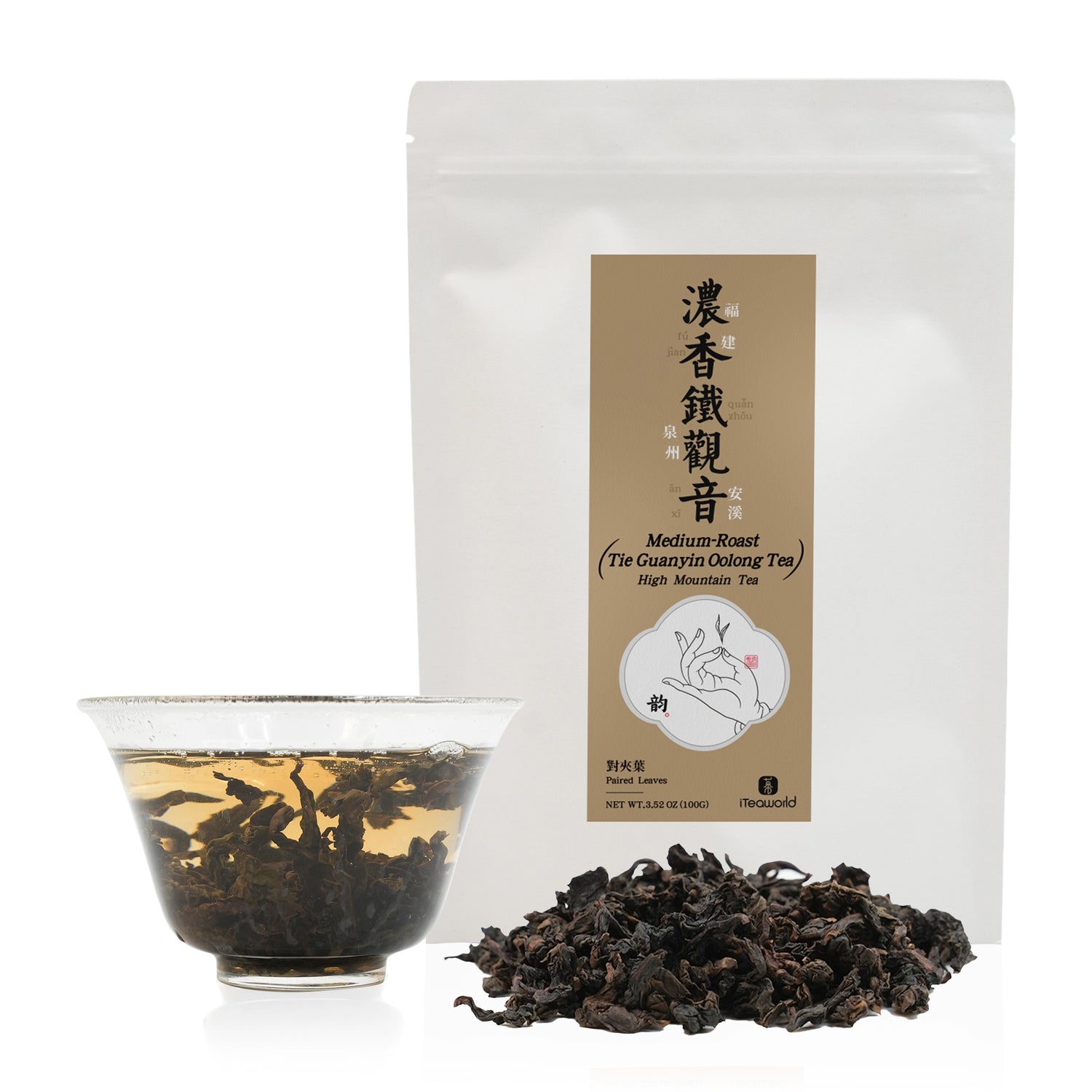
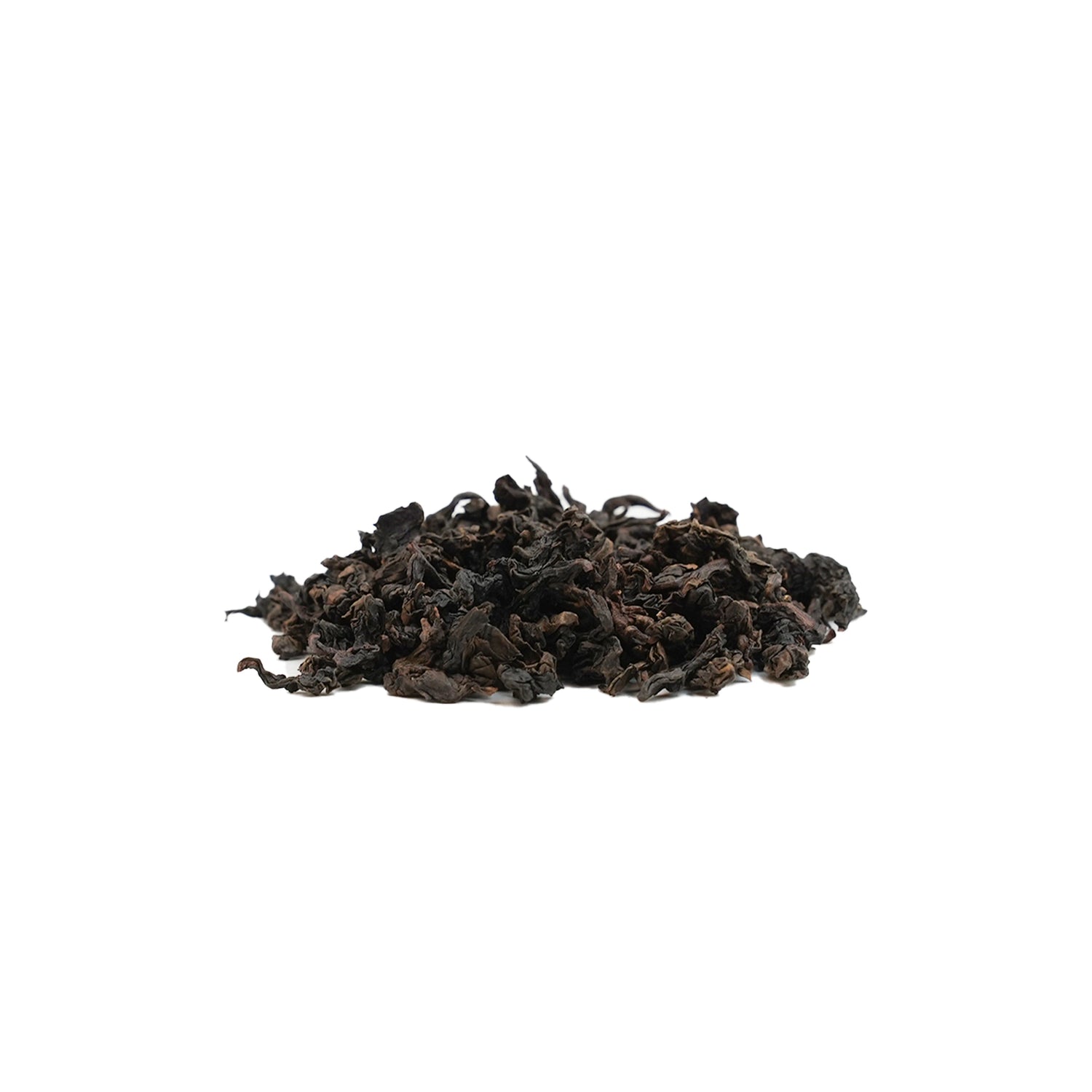
Anxi Tie Guan Yin (Traditional Charcoal-Roasted Oolong) for Daily Enjoyment
$18.99 USD
Unit price perAnxi Tie Guan Yin (Traditional Charcoal-Roasted Oolong) for Daily Enjoyment
$18.99 USD
Unit price perTie Guan Yin (Traditional Charcoal-Roasted Oolong) | 浓香型铁观音(炭焙)
Introduction
Tie Guan Yin is one of the most iconic oolong teas from China’s Fujian province. While its light-roast counterpart is known for floral fragrance, this traditional roasted style highlights a different spectrum—mellow body, dried fruit depth, and layered complexity.
This tea comes from Longjuan Village in Anxi, grown at 800–1000m elevation in sandy, well-drained soils surrounded by frequent mists. The region is known for producing small-batch charcoal-roasted Tie Guan Yin with strong aging potential and rich aroma.
Crafted by Wang Zhiyuan, a veteran tea maker, this 2024 spring harvest features tightly rolled leaves, roasted over low charcoal heat. Expect caramel sweetness, notes of longan and jujube, and a honeyed aftertaste. It’s a refined yet accessible choice for those who enjoy structure, warmth, and endurance in their oolongs.
Origin: Longjuan Village, Longjuan Township, Anxi County, Fujian, China | 800–1000m
Roasting: Traditional charcoal roasting (light-medium fire)
Tea Maker: Wang Zhiyuan, seasoned tea artisan with local acclaim
Cultivar: Tie Guan Yin
Harvest: Autumn Tea, 2024
Oxidation: Medium (45–55%)
Roast: Light to medium (Charcoal roasted)
Suitable for: Daily drinking, cooler seasons, or fans of roasted, full-bodied oolong
Shelf Life: 3–5 years
Storage: Store in an airtight container away from light, heat, and moisture. Best consumed within 1–2 years for peak aroma; suitable for slow mellowing.
Brewing
Vessel: Yixing clay teapot or porcelain gaiwan
Water: 100ml spring/pure water : 5g tea | 100°C / 212°F
Steeping:
-
1st–3rd infusions: 10 seconds
-
Later infusions: Add 5–10 seconds per steep
-
Can be brewed up to 8–10 times
Flavor Profile
Aroma: Caramel, roasted rice, longan, jujube, hint of smoke
Taste: Full-bodied and mellow, with sweet dried fruit and subtle char
Mouthfeel: Silky and rounded, with thick liquor and soft finish
Aftertaste: Honeyed, clean, and slightly mineral—lingers on the palate
Best Enjoyed When...
-
You’re looking for a warming, cozy oolong for cooler days
-
You enjoy roasted teas with depth, but not too much bitterness
-
You want a red wine–like oolong: structured, smooth, and complex
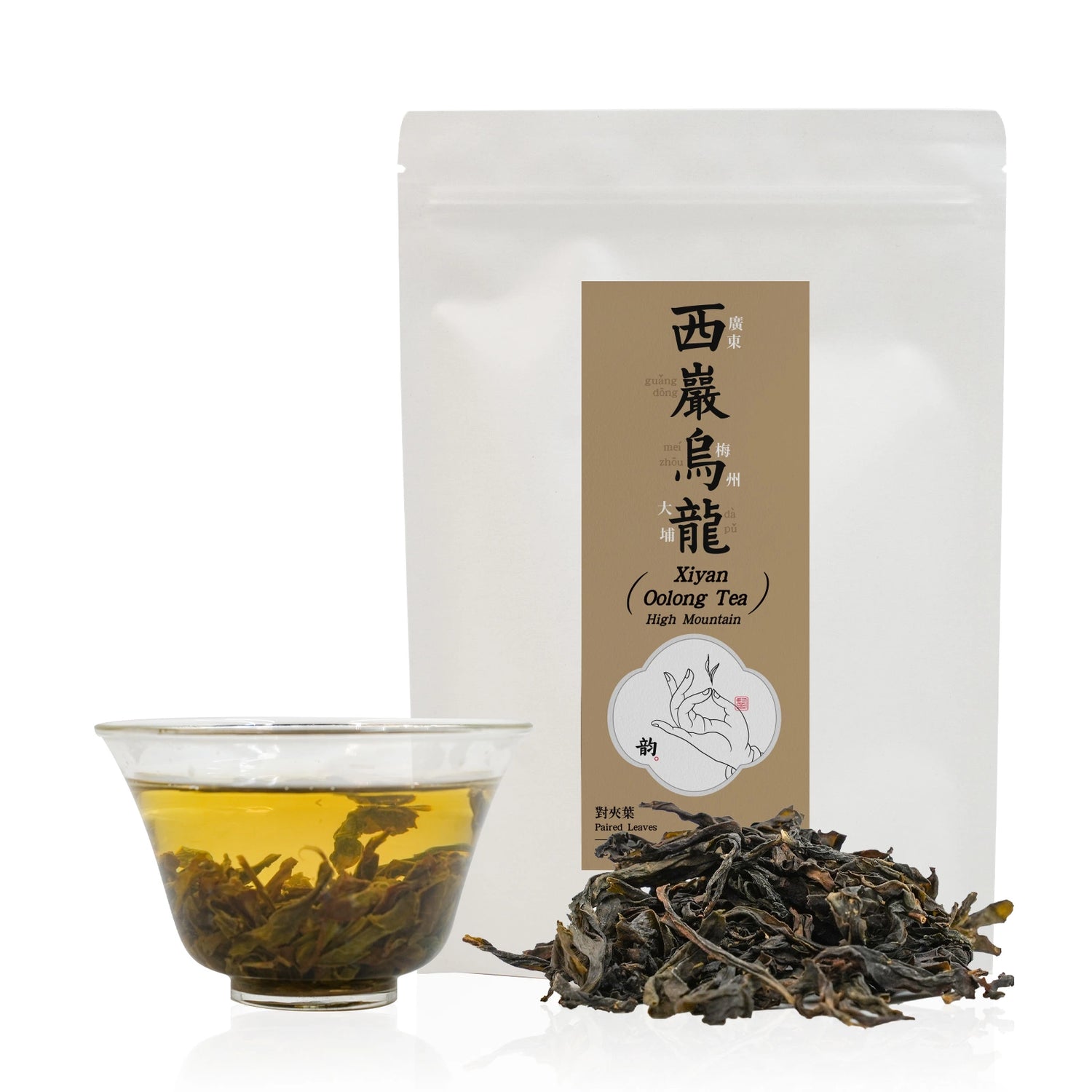
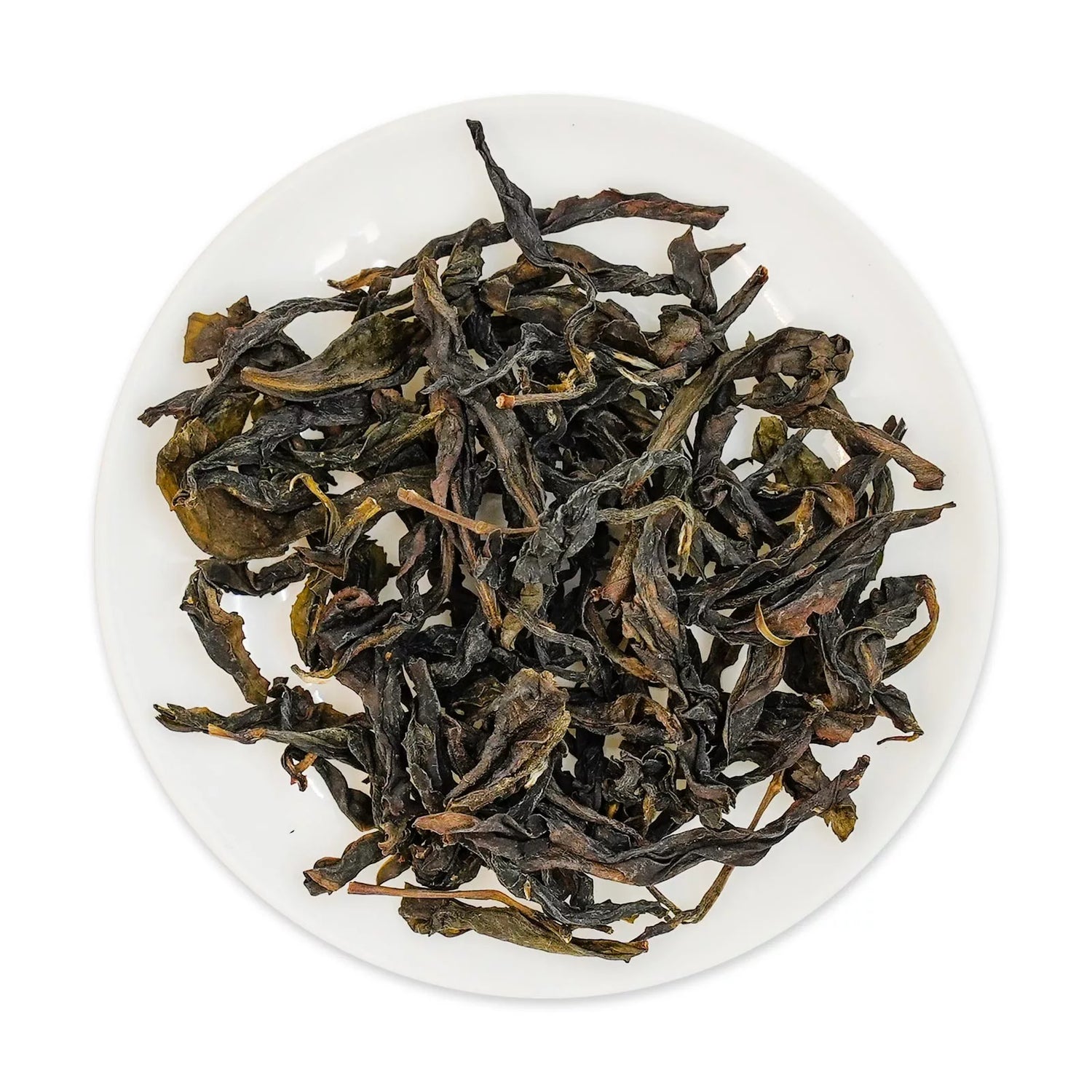
Premium Xi Yan Oolong combining Dancong fragrance with Wuyi-style strength 2025 100g
$21.99 USD
Unit price perPremium Xi Yan Oolong combining Dancong fragrance with Wuyi-style strength 2025 100g
$21.99 USD
Unit price perXi Yan Oolong | The Wild Backbone of Guangdong Oolong
A bold, floral, and mineral-rich oolong from the rocky slopes of Meizhou—combining Dancong fragrance with Wuyi-style strength.
Xi Yan Oolong is one of the most powerful and characterful oolongs in the Guangdong tea family. Grown in the remote mountain village of Xiyan in Meizhou, this tea delivers the floral lift of Phoenix Dancong along with the grounded body and minerality of Wuyi rock tea.
If Dancong is the perfume, and Lingtou is the dessert—Xi Yan is the mountain.
Tea Details
-
Cultivars: Local group varietals (mainly Shui Xian, Mei Zhan)
-
Harvest: Spring 2025
-
Origin: Xiyan Village, Fenglang Township, Meizhou, Guangdong, China
-
Elevation: 500–700m
-
Tree Age: 50+ years
-
Roasting: Heavy charcoal roasting (charcoal briquetting)
A Tea with Deep Roots in History
The Xiyan region has been cultivating tea since the Tang dynasty, and rose to fame in the Qing dynasty, when monks from the local Xizhu Temple cultivated high-mountain teas that were shipped across Southeast Asia as tribute tea.
Modern Xi Yan Oolong is made mostly from old group-varietal bushes (such as Shui Xian and Mei Zhan), many over 50 years old, growing between 500–700m. Since the 1960s, these high-altitude gardens have been known for a distinct “rock rhyme”—a deep, slightly spicy minerality that sets it apart from the sweeter, lighter oolongs of Chaozhou.
Processing: Heavier Roast, Deeper Flavor
-
Heavy withering + strong leaf shaking (yao qing)
-
Thick stems preserved for body and sweetness
-
Deep charcoal roasting (heaviest in Guangdong)
Compared to other Guangdong oolongs:
-
Xi Yan: rich, roasted, and structured (suitable for aging)
-
Phoenix Dancong: high fragrance, lighter body
-
Lingtou Dancong: soft, sweet, everyday drinker
“Rocky on the outside, floral at the core.”
Flavor Profile: Earth, Fruit, and Florals
-
Aroma: deep floral notes with subtle stone fruit
-
Taste: thick and warming, with hints of baked plum, roasted almond, and a cooling mineral aftertaste
-
Body: full and grounded, with a subtle honey edge
This is a tea that speaks slowly and confidently. It's not about quick aromas—it’s about structure, patience, and wild depth.
Who Should Try This Tea?
-
Fans of Wuyi rock tea (Yancha) looking to explore Guangdong’s version of “rock energy”
-
Dancong lovers wanting something darker, deeper, and more aging-friendly
-
Tea drinkers who value mineral-rich, grounding flavors
-
Those looking for a “serious” daily tea with excellent re-steeping value
Brewing Recommendations
Gongfu Style (recommended):
-
5g per 100 gaiwan
-
95–100°C (203–212°F) water
-
Rinse quickly, then infuse 6–8+ times
-
Start with 10–15 seconds, increase gradually
Western Brewing:
-
2g per 200ml
-
Steep for 1-3 minutes at 95-100°C
-
Re-steep up to 3 times


Premium Lingtou Dancong (Honey Orchid) The Everyday Honey-Sweet Oolong 100g 2025
$24.99 USD
Unit price perPremium Lingtou Dancong (Honey Orchid) The Everyday Honey-Sweet Oolong 100g 2025
$24.99 USD
Unit price perLingtou Dancong | The Everyday Honey-Sweet Oolong
A smooth, affordable, and incredibly drinkable oolong with long-lasting honeyed sweetness—perfect for daily sipping and afternoon tea.
If you're looking for a "universal" tea that’s easy to love, pairs beautifully with desserts, and delivers consistent quality without breaking the bank—Lingtou Dancong is the one. Known for its mellow honey character and exceptional value, this tea could become the next “sweet icon” of Chinese tea, right after jasmine.
Tea Details
-
Cultivar: Bai Ye Dancong (White Leaf Dancong)
-
Harvest: Spring 2025
-
Origin: Lingtou Village, Fubin Town, Raoping County, Chaozhou, Guangdong
-
Elevation: 500–700m
-
Tree Age: Under 30 years
-
Roast: Traditional charcoal roast
Why You Need to Try It
-
Love sweet tea? Its thick honey note rivals most oolongs—and even some black teas.
-
Seeking value? This is one of the most affordable yet flavorful Dancong oolongs.
-
Exploring the diversity of Guangdong oolong? Lingtou is a classic, but outside the better-known Phoenix Dancong system.
Origin & Story: Sweetness Born in the Mountains
Lingtou Dancong, also called Bai Ye Dancong (White Leaf Dancong), comes from Lingtou Village in Raoping County, Chaozhou, Guangdong. First cultivated in 1961, it was selected from wild Phoenix Shui Xian trees and now accounts for over 50% of tea garden area in Guangdong.
-
Cultivar: Small-tree, large-leaf type
-
Elevation: 500–700m
-
Soil: Mountain red clay with good drainage
-
Climate: Warm, misty, ideal for floral and honey aroma development
Flavor Profile: Rich Honey, Soft Floral, Easy to Love
Lingtou Dancong offers a bright, golden infusion with high floral aroma and a distinctive “mi yun” (honey rhyme)—a signature note prized by Chaozhou tea drinkers. It’s:
-
Sweet and smooth, never bitter
-
Medium-thick in body, with a lingering aftertaste
-
Great for pairing with pastries, fruit, or just a peaceful afternoon
Flavor Comparison:
-
Lingtou Mi Lan Xiang (Honey Orchid): Emphasizes honey, subtle florals
-
Phoenix Mi Lan Xiang: Emphasizes orchid, with lighter honey undertone
“A honey-sweet tea you can drink every day and never get tired of.”
Brewing Recommendations
Gongfu Style:
-
5g per 100ml gaiwan
-
95-100°C water
-
Quick rinse, then infuse 6–8+ times starting from 10 seconds
Western Brewing:
-
2g per 200ml
-
Steep at 95–100°C for 1–3 minutes
-
Can re-steep 2–3 times
-
Ya Shi Xiang (Duck Shit) Dan cong Oolong | The Icon of Guangdong Tea
The most famous Dancong oolong from Phoenix Mountain—misleading name, unforgettable taste.
Ya Shi Xiang, literally “Duck Shit Aroma,” is arguably the most well-known Phoenix Dancong oolong internationally. Despite its name, this tea is anything but unpleasant. In fact, it’s often referred to as the “calling card” of Guangdong oolongs, thanks to its bold floral fragrance, silky mouthfeel, and memorable backstory.
Tea Details
-
Cultivar: Ya Shi Xiang (Duck Shit )
-
Harvest: Spring 2025
-
Origin: DingYao Village, Fenghuang Town, Chaozhou, Guangdong, China
-
Elevation: 500-600m
-
Roasting: Traditional charcoal roast
A Legendary Tea with a Mysterious Name
This cultivar got its odd name from the mineral-rich yellow soil where it was originally planted—called “duck shit soil” (鸭屎土) by locals to discourage theft due to the tree’s extraordinary fragrance. Others say the name also comes from the leaf shape, which resembles the leaves of a local tree known as “duck foot wood.”
The original mother tree, now over 300 years old, grows at Pingkengtou Village (坪坑头) at 900m elevation in Phoenix Mountain, Chaozhou. Today, Pingtou is considered the most prestigious origin of Ya Shi Xiang.
Our selection comes from Dingdongjiao, a nearby village sharing the same terroir, altitude, and tree lineage—but with more accessible pricing.
Flavor Profile: Golden Honeysuckle, Orchid, and Ripe Peach
Officially categorized as “Yin Hua Xiang” (Honeysuckle Aroma), Ya Shi Xiang carries a fragrant bouquet of:
-
Orchid and honeysuckle (dominant)
-
Peach nectar or creamy vanilla (in higher grades)
-
Light bitterness on entry that melts into a long, sweet aftertaste
Its flavor is bright, floral, and juicy, making it one of the most beginner-friendly teas in the Dancong family—especially for those who love high-aroma oolongs.
“A tea with a silly name, but serious elegance.”
Brewing Recommendations
Gongfu Style (Recommended):
Teaware: Gaiwan or small teapot (100–150ml)
Tea Amount: 5g
Water Temp: 95-100℃/203-212℉
Infusion Time: Start at 10–15 seconds; can go 7+ infusions
Western-style Brewing:
2g per 100ml
1-3 minutes,95-100℃/203-212℉
Re-steep 2–3 times
Recently viewed products
Chat with fellow tea lovers, ask questions, and share your tea moments.





